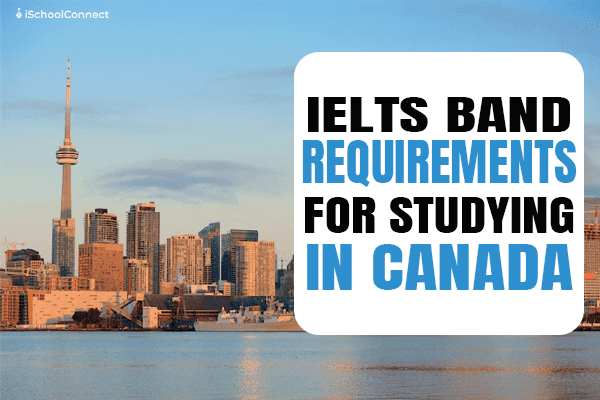- Digital SAT (in person)
- Digital SAT (online)
- Executive Assessment
- Bocconi Test
- Testimonials

GRE Argument Essay Template and Sample Argument Essay
- July 7, 2021 April 6, 2023

The second essay you’ll have to write when you sit down to take the GRE is the GRE Argument Essay. It’s only 30 minutes and can be a bit of a challenge…
So you need a strong game plan.
But should you really worry about the essays since they don’t factor into your quantitative and verbal scores?
Absolutely!
We tell our students that while the essay scores may not be of importance to graduate programs, the ease of writing them should be important to you. The Analysis of an Issue and Argument essays are the first sections of the GRE. You don’t want to go into them frazzled and anxious. You definitely don’t want to finish them feeling like you could have done better. Unfortunately, this anxiety will carry into the rest of the test and NOT pave the road to earning your best GRE score.
To help you relax into the essays and the rest of the test, we’re sharing the exact template and sample essay we show our GRE students. Before you take a look, read these tips on how to practice with them.
GRE Argument Essay Practice Tips

1. Words to use in every argument essay are in blue on the template.
You want to have these transitions and links well practice so that you can use them automatically on the test. Obviously, this essay is HIGHLY dependent on the one provided in the prompt, so much of what you write is unique to the question.
2. Your GRE argument essay should be 4 or 5 paragraphs depending on the question.
Some questions ask you to evaluate another opinion, discuss a disadvantage, or give an opposing viewpoint. Therefore, you need another body paragraph to respond to that part of the prompt.
3. The sample GRE argument essay is directly from ETS, so don’t copy the essay.
Think about how your examples and reasons can be used to respond to the prompt.
PEEL means Point – Example – Explanation – Link. The blue in the sample essay shows how well the body paragraphs conform to the PEEL writing format.
5. Always outline your essay first.
It is very obvious to a trained reader when students don’t outline their essays first. You just have to jot down your opinion and reasons or examples in a quick list. This quick outline will help keep you focused and make your writing more cohesive.
6. Check out the full list of GRE argument essay prompts .
You shouldn’t write essays for each prompt (there are a lot). However, you should read over the whole list looking for differences in the ways questions are asked. Then, pick 10 prompts to practice outlining. Of those 10, pick 5 essays to write fully.
7. For extra practice, work on the parts, rather than the whole.
Just write an introduction, a body paragraph, or a conclusion for some of the essay prompts. After outlining, of course. This type of focused writing will improve the individual parts of the essay, resulting in an entire essay that is much better overall. You don’t have to write the parts for the same essay. Switch it up!
8. When you write a full essay, do it in 30 minutes.
Practice the way you are going to perform. By the time you write your second full essay, you should be writing in only 30 minutes. Set a timer and type the essay on the computer without using spell check or Grammarly. Ideally, you will write the essays when you do a full-length GRE practice test . It’s important to develop stamina for the full 4-hour test.
GRE Argument Essay Template
In the argument provided [or letter or memorandum] , the author asserts that [his recommendation or proposal]. The author’s argument does not make a persuasive case for [goal of the argument]. This argument lacks sufficient logical reasoning and appropriate evidence, and thus, is not strong enough to [goal of the argument].
First, write your first reason that the argument is not sound here. For example, put your example of the assumptions the argument depends on here. You can use quotation marks if you directly reference the text. Explain your example with consideration of the stated and unstated assumptions. To strengthen her argument, the author would benefit from add the link to your thesis about the argument here.
In addition, write your second reason that the argument is not sound here. For instance, put your example here. Explain your example with consideration of the stated and unstated assumptions. Unless add specific link to the argument, it can not be used to effectively back the author’s argument.
[You may need another paragraph depending on what the prompt asks you to do.]
The conclusion should consist of a restatement of the argument goal, a restatement of your thesis, and a closer. The location of these in the paragraph will be different based on how you choose to write it.
GRE Argument Essay Sample Prompt
In surveys, Mason City residents rank water sports (swimming, boating and fishing) among their favorite recreational activities. The Mason River flowing through the city is rarely used for these pursuits, however, and the city park department devotes little of its budget to maintaining riverside recreational facilities. For years there have been complaints from residents about the quality of the river’s water and the river’s smell. In response, the state has recently announced plans to clean up Mason River. Use of the river for water sports is therefore sure to increase. The city government should for that reason devote more money in this year’s budget to riverside recreational facilities.
Write a response in which you examine the stated and/or unstated assumptions of the argument. Be sure to explain how the argument depends on the assumptions and what the implications are if the assumptions prove unwarranted.
Sample GRE Argument Essay
[Restatement of the given argument] In the argument provided, the author asserts that the Mason City government ought to devote more money to riverside recreational facilities. [Your thesis] The author’s argument does not make a cogent case for increased resources based on river use. [Overview of reasons related to goal] This argument is rife with holes and assumptions, and thus, not strong enough to lead to increased funding.
[First reason] Citing surveys of city residents, the author reports city resident’s love of water sports. It is not clear, however, the scope and validity of that survey. [Example] For example, the survey could have asked residents if they prefer using the river for water sports or would like to see a hydroelectric dam built, which may have swayed residents toward river sports. [Explanation] The sample may not have been representative of city residents, asking only those residents who live upon the river. The survey may have been 10 pages long, with 2 questions dedicated to river sports. We just do not know. [Link] Unless the survey is fully representative, valid, and reliable, it can not be used to effectively back the author’s argument.
[Second reason] Additionally, the author implies that residents do not use the river for swimming, boating, and fishing, despite their professed interest, because the water is polluted and smelly. [Explanation] While a polluted, smelly river would likely cut down on river sports, a concrete connection between the resident’s lack of river use and the river’s current state is not effectively made. Though there have been complaints, we do not know if there have been numerous complaints from a wide range of people, or perhaps from one or two individuals who made numerous complaints. [Link] To strengthen his/her argument, the author would benefit from implementing a normed survey asking a wide range of residents why they do not currently use the river.
[Third reason] Building upon the implication that residents do not use the river due to the quality of the river’s water and the smell, the author suggests that a river clean up will result in increased river usage. If the river’s water quality and smell result from problems which can be cleaned, this may be true. [Example] For example, if the decreased water quality and aroma is caused by pollution by factories along the river, this conceivably could be remedied. But if the quality and aroma results from the natural mineral deposits in the water or surrounding rock, this may not be true. [Explanation] There are some bodies of water which emit a strong smell of sulphur due to the geography of the area. This is not something likely to be afffected by a clean-up. Consequently, a river clean up may have no impact upon river usage. [Link] Regardless of whether the river’s quality is able to be improved or not, the author does not effectively show a connection between water quality and river usage.
[Closer] A clean, beautiful, safe river often adds to a city’s property values, leads to increased tourism and revenue from those who come to take advantage of the river, and a better overall quality of life for residents. [Restatement of the given argument/goal] For these reasons, city government may decide to invest in improving riverside recreational facilities. [Restatement of thesis] However, this author’s argument is not likely significantly persuade the city goverment to allocate increased funding.
Need help preparing for the GRE?
Happy students are our business.

More from Apply Me

Leave a Reply Cancel reply
Your email address will not be published. Required fields are marked *
Save my name, email, and website in this browser for the next time I comment.
WhatsApp us
This site uses various technologies, as described in our Privacy Policy, for personalization, measuring website use/performance, and targeted advertising, which may include storing and sharing information about your site visit with third parties. By continuing to use this website you consent to our Privacy Policy and Terms of Use .
We are experiencing sporadically slow performance in our online tools, which you may notice when working in your dashboard. Our team is fully engaged and actively working to improve your online experience. If you are experiencing a connectivity issue, we recommend you try again in 10-15 minutes. We will update this space when the issue is resolved.
How to Write a Great GRE Argument Essay

When you take the GRE , you’ll have to write two essays : an Issue essay and an Argument essay. In your GRE Argument essay, you’ll get to demonstrate how well you can understand, analyze, and evaluate an argument. Here are ten GRE Argument essay tips you should know.
Fact #1: It doesn’t matter who is right
Fact #2: you'll have just 30 minutes for the gre argument essay, fact #3: graders will not pore over your essay, fact #4: quality matters, but so does quantity, fact #5: the prompt will tell you everything you need to know.
Make sure you read the prompt two or three times. You’ll want to make sure you truly understand it. Pay attention to what evidence is provided, what is stated in the prompt, and what is claimed by the author. A great way to identify fallacies is to determine what the author has assumed, and then try to explain why that assumption may be wrong. Here are four things to look for:
- Lack of evidence to support an assumption : You’ll want to mention this dearth in your essay—and note the type of information that would strengthen the argument.
- Non-specific language : Does the author make generalizations without providing specifics? You will want to point that out!
- Jumping to conclusions : Most Argument prompts will jump to conclusions at least once. As you read each sentence in the prompt, look for the author’s reasoning. If you can’t find a clear line of argument, you should note that the author has jumped to conclusions.
- Data values : Just because the author provides numbers doesn’t mean they’re necessarily objective or even true. Consider—and discuss within your essay—the reliability of any data, or data collection methods, that are presented in the prompt.
Fact #6: Structure will save you
After you read the prompt, brainstorm the logical fallacies you want to address. Then, choose your top three or four, and formulate a brief outline before you start your essay. There is nothing worse than having to stop writing your essay to come up with new ideas, so you’re going to want to follow a strict organizational format. Here’s a good general template to keep in mind:
- Intro : This should consist of three or four sentences in which you provide an overview of all the fallacies you plan to address.
- Fallacies : Each should get its own indented paragraph. You’ll want to discuss it in detail, and you may even opt to quote from the prompt in making your case.
- Suggestions for improving the prompt argument : Time-permitting, you’ll ideally want to include a paragraph in which you detail how the author could make a stronger case.
- Conclusion : As short as the introduction, this should summarize your body paragraphs (the fallacies and suggestions) and tie up any loose ends. Don’t skip this part! Even if you only have time for a single sentence, write one. An essay without a conclusion will almost certainly receive a lower score than one that is finished.
Fact #7: Clear writing is key
Fact #8: you’ll get one combined score for both essays, fact #9: you don’t have to be perfect to earn a perfect score, fact #10: you can plan ahead.
- Graduate School

Explore Graduate Programs for You
Explore our featured graduate schools & programs to find those that both match your interests and are looking for students like you.

Best Law Schools
Check out our complete list of 168 law schools, based on surveys of school administrators and over 17,000 students.

Search for Medical Schools
Our medical school search allows you to refine your search with filters for location, tuition, concentrations and more.

Find MBA Programs Matched to Your Interests
Explore our featured business schools to find those that are looking for students like you.

Free MCAT Practice Test
I already know my score.

MCAT Self-Paced 14-Day Free Trial

Enrollment Advisor
1-800-2REVIEW (800-273-8439) ext. 1
1-877-LEARN-30
Mon-Fri 9AM-10PM ET
Sat-Sun 9AM-8PM ET
Student Support
1-800-2REVIEW (800-273-8439) ext. 2
Mon-Fri 9AM-9PM ET
Sat-Sun 8:30AM-5PM ET
Partnerships
- Teach or Tutor for Us
College Readiness
International
Advertising
Affiliate/Other
- Enrollment Terms & Conditions
- Accessibility
- Cigna Medical Transparency in Coverage
Register Book
Local Offices: Mon-Fri 9AM-6PM
- SAT Subject Tests
Academic Subjects
- Social Studies
Find the Right College
- College Rankings
- College Advice
- Applying to College
- Financial Aid
School & District Partnerships
- Professional Development
- Advice Articles
- Private Tutoring
- Mobile Apps
- International Offices
- Work for Us
- Affiliate Program
- Partner with Us
- Advertise with Us
- International Partnerships
- Our Guarantees
- Accessibility – Canada
Privacy Policy | CA Privacy Notice | Do Not Sell or Share My Personal Information | Your Opt-Out Rights | Terms of Use | Site Map
©2024 TPR Education IP Holdings, LLC. All Rights Reserved. The Princeton Review is not affiliated with Princeton University
TPR Education, LLC (doing business as “The Princeton Review”) is controlled by Primavera Holdings Limited, a firm owned by Chinese nationals with a principal place of business in Hong Kong, China.
- GRE Tutoring
- GRE Practice
- GRE Free Consultation
- GRE Prep Resources
How to Write an Effective Argument Essay for the GRE
The Graduate Record Examination, or GRE, has three sections. One of those sections measures a student’s analytical writing skills. For this section, students are required to write both an issue essay and an argument essay. GRE graders look closely at the evidence included in a student’s argument essay as well as the organization of all of the various components. Learn what an argument essay is and get some tips on how to write an outstanding one for the GRE.
What Is the GRE Argument Essay?
The argument essay on the GRE requires you to evaluate an argument put forth by an author. Your job is to examine the author’s reasoning and evidence as well as the overall organization of the argument.
Ultimately, you must decide whether the author’s argument is logical. If you decide that the author’s argument is illogical, then you must give specific reasons to support that analysis. For example, you may point out unanswered questions or faulty pieces of evidence in the argument. Alternatively, if you decide that an author’s argument is logical, then you must offer evidence supporting that analysis.
When writing this essay, you should not reveal whether they agree or disagree with the author’s argument. Furthermore, you should not share their views on the subject being discussed. The purpose of this essay is to reveal your skills in analyzing and evaluating an argument, not in presenting your own argument.

Tips for Writing GRE Argument Essays
There are many useful tips that can help you write an excellent argument essay. GRE test-takers may want to begin by jotting down notes on a scrap piece of paper as they read the author’s argument. The few minutes that you dedicate to taking these notes can ensure that you include all of the important points in the final essay.
You should always read the instructions paired with each GRE argument task before starting to write. Not every argument essay has the same set of instructions – for example, some instructions require you to focus on an author’s assumptions, while others ask that you focus on unanswered questions in the argument. These are just two examples out of many types of instructions given to students tackling the GRE argument essay. It’s also a wise idea for you to draft an outline for the essay before beginning to write it. Following an outline can increase the clarity and organization of an argument essay.
Our GRE courses at Varsity Tutors provide students with the tools and strategies they need to craft a notable argument essay. Our instructors have taken and mastered the GRE, enabling them to pass on valuable tips to students. We offer several tutoring options , including online and in-person instruction, to make GRE preparation as convenient as possible for our busy students.`
Preparing for the Argument Essay
Most students want to do everything they can to write a clear, organized argument essay. GRE prep should include essay-writing practice. You can write a practice argument essay, then dissect it sentence by sentence to make sure it contains all of the necessary elements. As a note, the GRE gives students 30 minutes to write an argument essay, so it’s a good idea for you to time yourself when you complete your practice essays. That way, you know how much time you can spend on making notes, drafting an outline, and writing the essay.
It’s also helpful for you to study essays that received a high score on the GRE. An outstanding argument essay contains vocabulary words that add to the clarity of the writing. You can expand your supply of vocabulary words by reading online articles, newspapers, and magazines. You may want to jot down some words commonly used in these publications. Flashcards are helpful study tools for students who are learning unfamiliar words and their definitions as well.
Our instructors at Varsity Tutors can teach you how to write a GRE argument essay. We offer practical advice and guidance that students can use as they move through the steps of writing a convincing essay. Also, our instructors give valuable encouragement to students to help them have a confident mindset on test day. Contact Varsity Tutors today and let us help you boost your essay-writing skills!
Want to jump-start your GRE preparation? Check out our variety of GRE Course and Private Tutoring options.
GRE Blog Categories:
- Grad School Admissions
- How to Study for the GRE

GRE Issue Essay: Strategies + 8 Real Student Essays with Scores
The content in this post applies in 2024 to the new, shorter GRE!
When you sit down at the computer on test day, the very first thing you’ll encounter is the GRE AWA Issue essay. For a lot of test-takers, this will feel daunting. But not you! In this article, Magoosh’s experts will guide you through the most important steps in attacking the analyze an issue task. In addition, we’ll take a look at student examples of the GRE “Analyze an Issue” task so that you can understand what gets a high score—and what doesn’t—on the official exam.

Table of Contents
An overview of the gre issue essay.
- Top 5 AWA Issue Strategies
Student GRE Issue Essay Analysis: Prompts, Essays, and Grading Samples
So, what do you need to do for the GRE AWA Issue essay? Well, your goal is to read the prompt, then agree or disagree with the premise—and explain the extent to which you agree or disagree. Think you can’t prepare in advance? You’d be wrong! There are two main things you can do to get ready for the AWA portion of the GRE.
Review the Topic Pool
First, because the prompts are drawn from GRE’s published pool of Issue Essay topics , a bit of research will give you an idea of what to expect in terms of subject matter and presentation. Don’t try memorize all of them! There’s far too many. But! Do spend time browsing the topics and thinking about how to approach them.
Plan of Attack
Second, come up with a plan to navigate the GRE “analyze an issue” task. Not sure where to start? We can help! Here’s an example of a tried and true process for high-scoring essays that you can use to address any Issue task:
- Read the directions carefully
- Brainstorm and outline pros and cons
- Choose a side
- Select a concession point
- Be sure to leave around two minutes for proofreading and editing

Top 5 GRE Analyze an Issue Task Strategies
Now that you have the basics down, let’s take a look at some more detailed strategies you can use to maximize your score on the GRE AWA Issue essay.
1. Be Organized
Even an impassioned, cogent response falls apart if it is not bundled into a proper essay format: An introduction, a few body paragraphs, and a conclusion.
2. Focus Your Paragraphs
The Introduction The Intro paragraph has a very limited purpose: The Intro should only introduce the topic and present a clearly defined thesis statement. The thesis will indicate your position on the issue. Your stance should be just ONE of the many points of view about the topic, not more than one. Often it is easiest for the writer—and the reader—if the last sentence in the Intro is the thesis.
The Body Paragraphs The 2-3 body paragraphs make up the bulk of analyzing the issue and should focus on using examples (ideally one per body paragraph) to develop and support your thesis. Make sure you use appropriate transitions and that your sentences link together cohesively so that by the end of each body paragraph you have persuasively—and clearly—shown how your examples supports your thesis.
The Conclusion The conclusion should be very short. In fact, it should only be a few sentences that recap your thesis and supporting points.
3. Keep It Engaging
Repetitive sentence structure makes for repetitive reading. Vary up the way you write—don’t be afraid to use a colon (or a dash), drop in a semi-colon, and vary up the syntax. A constant stream of noun followed by verb followed by adjective implies that you are a hesitant writer. You don’t want the overall impression your essay leaves on the graders to be a resounding meh .
4. Be Specific
Hypotheticals are fine, if you can use them to convincingly back up your point. However, that’s the tough part; “some people,” “mankind,” or “you” are dull and vague. Let’s say you are addressing this prompt: “Knowledge can sometimes be used for destructive ends.” Stating that “Oppenheimer’s knowledge of nuclear fusion allowed him to create the most destructive weapon the world had ever known” is far more impactful than, “scientists can sometimes use technology to hurt us.”
5. Stay On Topic
Perhaps the most important point (lest you wonder why you received a ‘1’ on your essay) is to keep your essay on topic. Imagine you had to respond to the mock prompt on knowledge I used above. If you begin talking about how technology is destructive because smartphones cause us to become insular… you have totally forgotten to answer the question, “Knowledge can sometimes be used for destructive ends.” Address the most compelling examples, yes—but the most compelling examples that relate directly to your topic!
Now, it’s time to take a look at how sample essays meet (or fail to meet) the above criteria—and how this affected their scores. All of the following essays were written in response to the GRE Issue prompts , so check them out if you haven’t already, and then come back to analyze some examples!
Note: We’ve formatted the essays so that you can see the prompt and instructions first, then try writing your own response (this is great practice!). Once you’ve done that, click on the “essay and analysis” arrows to view examples of graded student essays and see how yours compare.
GRE Issue Essay Prompt 1: University Requirements
Prompt Universities should require students to take courses only within those fields they are interested in studying. Instructions Write a response in which you discuss your views on the policy and explain your reasoning for the position you take. In developing and supporting your position, you should consider the possible consequences of implementing the policy and explain how these consequences shape your position.
Student Essay
Some people believe that universities should put stringent policies in place that require students to take courses only within a chosen field of study, thus harshly limiting the breadth of knowledge that they are able to study. Concentrating on only one field is important in terms of developing expert knowledge and specialization, but it is also crucial that the student hone a well rounded knowledge of the nature of the world so that their field of specialization is accented with courses from outside disciplines as well. It is for this reason that I believe that students should focus their study on a specific field yet also be allowed and encouraged to accent and expand their specialized knowledge by sampling courses from other areas of specialty as well.
Our current globalizing world contains diversity of knowledge, culture and creed that is increasing at a rapid pace and in order to succeed in a world such as this, it is necessary to hone a diverse skill set of knowledge and expertise. Therefore, university policies should encourage students to accent their study of a specific discipline with outside courses that will enhance the breadth of their knowledge about the nature of the world. A student studying medicine, for example, clearly needs to focus the majority of their time on understanding the inner workings of the human body on a scientific level. However, it is also crucial for them to have a more general knowledge of the way in which humans function on an individual or cultural scale (i.e. psychology and anthropology), because effective doctors are not simply capable of diagnosing diseases, but can also interact effectively, with individual and cultural sensitivities, with their patients in order to provide the most well-rounded care. A mathematician who knows only about math and knows nothing about the ancient civilizations whose cultures discovered geography will be ill-suited to make math interesting to his future students or to understand the real world implications of the equations he slaves over daily. A one-dimensional course of study will only serve to foster bias and an uncritical approach to life in such students. Thus, because we live in a world that is multi-faceted, it is important for every specialist to learn a bit about specialities outside of their main discipline in order to augment their understanding of the world at large.
When universities provide a structure of encouragement for their students to augment their specified studies by selecting some courses from outside their discipline, there are some possible consequences, such as the potential for students to change their mind about what they want to focus on. Some may say this is an inefficient use of time and that it will confuse students. However, I would argue that it will foster a wider breadth of knowledge that is ultimately beneficial for any student; a student that started studying biology but then switched to psychology, for example, will always appreciate and pay heed to the importance of our life sciences and will not neglect to consider how the functions of the body may affect someone’s mental health. The existence of knowledge in a wider range of disciplines will only provide the student with more information with which to take charge in a world that is highly complex and rapidly changing all the time, and so allowing them to experiment a little and change their mind once or twice is to their benefit rather than to their detriment.
In conclusion, I disagree that universities should require students to take courses only within their specific, chosen field of study. When students are able to focus their study on one specific topic but then augment it by sampling courses from other disciplines, their knowledge becomes more wide ranging and interdisciplinary, thus providing a better foundation for them to succeed in a rapidly globalizing world. While they may change their minds as to their preferred topic of study one or two times, they will ultimately succeed by having a wide breadth of knowledge that will teach them to approach the world without a subject specific bias. Overall, it is best that universities allow their students to take courses outside of their chosen course of study in order to diversify their pallate of knowledge.
Issue Essay Analysis
This GRE Issue essay starts off with a strong intro that clearly articulates the author’s position. The essay is also very long, and the body paragraphs well developed. In terms of ideas this is a strong—though if slightly limited—essay. It makes a compelling case for interdisciplinary learning. A physician studying anthropology will be more culturally sensitive; a psychologist who studied biology will have a great appreciation for the biological underpinnings of the psyche. The writer justifies this well-roundedness in terms of relevancy: a one-dimensional person will struggle in our complex, globalized world. As well thought out and supported as these points, they are far too similar, and this essay would have benefited from picking another example that argues in favor of allowing students to take courses outside of their majors. Another flaw is the essay doesn’t directly addresses the directions: “should consider the possible consequences of implementing the policy.” Is a world of well-rounded, complex individuals the consequence of allowing students to choose subjects outside of their majors?
Stylistically this essay is not perfect, and I have some minor grumblings.
The ongoing debate about whether a university should require students to take courses only within their fields of study or take extra classes to fulfill graduation requirements is an interesting one. There any many valid arguments to each side and it is not a simple black or white choice when deciding who is right. However, by requiring students to only take courses within their major, it allows for students focus on taking classes that are only applicable to their future careers and allows them to save money in a time where saving money is equally important to a college degree.
In many situations, students will finish high school and go on to college with an idea of what they want to do with their life. For students who are in majors such as engineering or the a science field such as chemistry or biology, it is important to for them to stay on top of all of their course work because of the higher number of courses that they must take in order to fulfill the university requirements for a degree. Many of these students knew before they entered college that this would be the case and gladly accepted that challenge, however by requiring students to take extra general education classes to fulfill their diploma requirements seems counter intuitive to a level of education where students are beginning to focus and narrow in on their future career goals. By forcing say a engineering student to take music theory or British literature just simply to fulfill a general education requirement and having that class conflict with a engineering major course seems to prevent these students from coming to college and fully obtaining their goal as quickly as possible.
The other aspect to consider is the financial aspect. In many of these situations, the students are under pressure to finish their degree as soon as possible because of many state budget cuts to education which limit the number of classes offered with in their major. Not only does this mean extra classes that students must take and thus more money they have to spend because tuition is usually based on a per unit fee, forcing these extra classes upon can have a longer impact if they are forced to stay longer in college than they originally assumed they would. College already charges an extremely large amount to attend and that already does not take into account the other expenses that students have to pay (such as room and board, food, and books), but adding on extra semester, quarters, or even years because a student had to take general education classes instead of strictly major classes is an unfair system to put a student through.
As with any situation though, there are always exceptions to the rule. For one not every student enters college with the same career focus and direction as their peers. Many students will come into college unsure of the direction they want to take and many students who think they know what direction they want to go, end up changing their minds (sometimes multiple times). By requiring students to take classes from a broad range of spectrums, Universities can help students narrow down what career path they may want to follow. Many times students may have a preconceived notion of what a subject may be about and not want to try it, yet by requiring it, they may be able to find themselves in a new class with something they may choose to pursue in the future, something they perhaps never would have considered. There is also something to be said about being able to take higher education classes simply for the benefit of wanting to learn about something that interests you. College allows you to do that and by making it a requirement, it allows students a bigger chance to do that.
Overall though, universities that force students to take upwards of 10-12 general education classes just to fulfill a requirement for their diploma seems unfair. When a student comes into college with a specific end game in site, the universities should not hinder their goals by overloading them with extra requirements and instead focus on helping hem obtain their goals as quickly as possible. The time and financial benefits that could be reaped by not requiring students to take these classes could have a direct impact on the success of all students as well as the future communities they intend to help.
Score: 5.0 This essay covers most of the bases: it offers analysis on both sides of the issue, it throws in a few sentences that address the specific instructions, and it, for the most part, clearly articulates a position. The essay does not wow with thorough analysis, great sentence variety (or indeed any stylistic flourishes). In other words, it gets the job done without making too many missteps.
While I award this essay a ‘5’, there are moments when that score seems shaky. This is not mainly due to the ideas (though the generalizations don’t help: “As with any situation though, there are always exceptions to the rule”); at times the sentences become overloaded and tend to digress.
Word choice could have also been a little more dynamic. “Large”, “bigger”, etc. could be spiced up a little more: “astronomical”, “excessive”, etc.
In addition to making the sentence more readable, and varying up the syntax a little, the essay could have been improved with a little more analysis. I would have like to say more than taking more courses is expensive. Sure, that is a totally valid point, but to spend an entire paragraph on it the overly long first paragraph about students who are not engineers as well.
Additionally, the last body paragraph is confusing: “There is also something to be said about being able to take higher education classes simply for the benefit of wanting to learn about something that interests you. College allows you to do that and by making it a requirement, it allows students a bigger chance to do that.” Is the author implying that colleges shouldn’t require students to take only course in their field (which would go against the main point of the essay)? And by saying that colleges make “it a requirement” that college require students to take courses outside their field?
Had this paragraph been a little clearer and had the writer expanded the scope of the financial issue, this essay—along with a little more dynamic writing and sentence variety—could get at least a definitive ‘5’, if not a ‘5.5’.
Liberal arts colleges and professional schools often debate whether they are required to develop well-rounded individuals. The primary purpose of universities is to establish the ground work for future field experts and specialists, meaning the developing into other fields would detract from the development of specialization. A basic understanding of how to delve into other fields is all that’s necessary.
A college degree in a field suggests that a graduate has the basic understanding of a specialized field, and they may continue to develop into a true expert. At every level of the collegiate process, students have further expansion into their speciality. For instance, science majors start with basic fundamentals that are required for latter learning. They soon go off into their own fields, isolated from the humanities and, often, other science majors. Because students usually have only four years to achieve a set requirement of tested standards in a particular field, universities must push students into their fields quickly. There simply isn’t enough time to truly explore all the possible fields of study at the university level. Exploratory learning shouldn’t be required as it doesn’t serve any purpose when the student won’t continue to explore in those extracurricular fields.
If a student were to only hole themselves away into the fields of physics, they may never truly understand how their physical knowledge relates to society and the social world. Universities tend to have to weigh this “roundedness” against the need to produce future field experts. The outcome is introductory classes that relate to your field, but intertwine with other fields of study, and push students to explore on their own time. These initial exploratory classes would be necessary for any field of study anyway, as creativity and individual pursuit is essential for any expert to further their field’s knowledge.
These exploratory classes are necessary for students to apply their growing expertise, but leaving their fields of study should be done on their own because they can only expand into the elementary levels of other fields within their time restraints at the university level. In this way, students aren’t led by the hand through fields they aren’t interested in, but they would still have the capability to explore their fields if they truly were intrigued. Allowing students to create their own directions, intertwining their interests, creates dynamic individuals who are happier with their degrees and more productive to the world through their specialization.
Universities are meant to develop future experts and specialists in particular fields of study. They should lay the groundwork for students to be able to explore of fields, but not in a way that detracts from their field’s work. At a moment when their time is so precious, students can’t afford to be left behind in their fields as they are forced by curriculum to explore unwanted alternatives.
There are some things about the essay that I like: it brings up interesting ideas relating to the prompt. Do specialists with “roundedness”contribute more to their fields than those specialists who focus only on their fields? The sentence variety makes things flow along nicely, until the middle of the essay, where the author becomes vague. Indeed, at times I’m not sure which side of the prompt the author is arguing.
For example, at the end of the second paragraph he states: “Exploratory learning shouldn’t be required as it doesn’t serve any purpose when the student won’t continue to explore in those extracurricular fields.”
The very next sentence—the first sentence of the third paragraph—says the exact opposite: “If a student were to only hole themselves away into the fields of physics, they may never truly understand how their physical knowledge relates to society and the social world.” Suddenly,the paragraph is arguing against what the previous paragraph stated.
The second to last paragraph is weighed down in abstractions, without a useful specific example to clear things up. Consider the topic sentence: “These exploratory classes are necessary for students to apply their growing expertise, but leaving their fields of study should be done on their own because they can only expand into the elementary levels of other fields within their time restraints at the university level.” There is a lot going on here, and I really had to reread the sentence several times to get what the author was saying. The ETS graders won’t take this much time. And given that the essay has already pulled an about-face in the previous paragraphs, makes this sentence even more obfuscatory.
The conclusion is much clearer than the rest of the essays, and allows me to understand what the essay was trying to say alone.Compare the clarity of this sentence to the one I mentioned in the previous paragraph: “They should lay the ground work for students to be able to explore of fields, but not in a way that detracts from their field’s work.”
So how to grade an essay like this? Strong analytical skills, sophisticated writing, and solid organization….yet, a contradictory—and at times muddled (the clause in the intro, “….meaning the developing into other fields) leads to a confusing essay.
The author states that students should only take classes within their realm of study. Although, students may gain more of a grasp on what they are studying, this requirement fails to take in what students can learn outside of their required classes. To say that students can only take classes within their concentration is occluding them to knowledge that they may learn in other fields of study.
For example, universities typically require students to pick their major, as well as a minor. Some programs may also require students to select a few elective classes as well, so students can establish themselves as more rounded individuals.
Also, taking classes outside of a student’s field of study may help boost the student’s overall GPA. For example, if a student has an in major GPA of 2.5 and an out of major GPA of 3.2, then the overall GPA will increase. However, it could be vice versa as well. If someone isn’t doing that great in their elective classes, it could bring their overall GPA down.
If this policy is implemented, the consequences may be severe. One consequence could be that a student may not be able to graduate on time because they may not have enough credits. Or they may not meet the GPA requirements to graduate because they failed a few classes within their major.
If the university decides that students can only take courses within his or her chosen field of study, then the university may not produce well rounded individuals.
This essay is an example of a 4.0—just barely—that is undeveloped and thus on the short side. It is not an example of a longer, totally one-sided ‘4’ that ignores the directions (notice how the final body paragraph addresses the “consequences” mentioned in the instructions).
What the author has written is an intelligent response to the prompt. She doesn’t simply agree with the prompt, but takes the opposing side, providing support (“To say that students can only take classes within their concentration is occluding them to knowledge that they may learning other fields of study.”). In passing, I should mention that “occlude” is used incorrectly. This is not a major problem, but remember that, if you use GRE words, make sure you know how to use them correctly.
I do not agree with the stated policy to allow students to only take course within their chosen fields of study. Instead I feel that students should should have the opportunity to take course outside of their major for the following reasons.
First, I feel that taken course outside ones major gives students variety, and exposure to experiences or interactions they may not have considered previously. Take for example Lisa, an engineering student who spends countless hours studying. Realizing that she needed a change of place an outlet of some sorts decides to take a modern dance course just for fun. What ultimatly was that Lisa learned to relax which interned helped her study more effectively and perform better in her engineering course.
Then take Monique, a political science major who doesn’t know how to swim. decided to take a swimming course and not only learned to over come her fear, but gained confidence in other other aspects of o her live.
Thirdly, lets consider Jason, a physics major who only took courses in his major. He became such an expert in his field us study, but became increasing socially award because of his inability to converse or relate to his peers.
In the even both Lisa and Monique were not able to take course outside of their major, I fear that they would have succumb to the pressure that sometimes too often over takes students adjusting to university lift. By deviating from their mandatory set of course they found a renew focus and inner strength that they may have never know before. Jason however, didn’t fair as well due to his strict focus in University
University is about diversity and gaining new experience for growth and development. Not being allowed to explore this diversity limits the over experience and potential stunts the education growth and perspective of students
Grammatical errors and spelling mistakes mar the effectiveness of this essay. Specifically, commas are misused (or not used at all), incorrect words are used (“interned”, “award” vs. “awkward”). I think many of these mistakes can be remedied if the student spends some time editing.The point in editing isn’t to catch the nitpicky errors but the glaring ones (of which this essay has many).
Next, the essay has very predictable development: take one-side of the prompt, and then come up with three hypothetical examples to support the point. There is zero analysis. This essay could have been improved and gotten within striking range of a ‘4’, or at least a ‘3.5’, had it simply addressed the instructions: “consider the possible consequences of implementing….” Of course, addressing the grammatical and spelling errors would have helped the essay.
Prompt 2: Lasting Legacy
Prompt Those who see their ideas through, regardless of doubts or criticism others may express, are the ones who tend to leave a lasting legacy. Instructions Write a response in which you discuss the extent to which you agree or disagree with the statement and explain your reasoning for the position you take. In developing and supporting your position, you should consider ways in which the statement might or might not hold true and explain how these considerations shape your position.
A famous author once remarked that “Winners never quit and quitters never win”. People who see their ideas through, however unpragmatic it may be considered by others are the ones who have truly made a difference.
History is replete with examples of people who were perceived as crazy, illogical and even insane by laymen, yet when their ideas were sedulously worked upon, by the creator , day after day, combined with long hours of toil, the result was nothing, short of marvelous.
Lets’s take the example of the Indian freedom struggle fought by Gandhiji on the basis of Satyagraha. It was very difficult for the Britishers to assume that India would be freed one day under the leadership of a loin cloth covered ordinary looking man without the use of weapons or bloodshed. The reason that Indian freedom could be achieved was the unflagging determination of Gandhiji and the uncommon methodology used of winning freedom by peace and not bloodshed.
Looking not far, I can recall the example of Galileo who was reviled and persecuted by the Church authorities for challenging the existing norms that pervaded the society that time. Galileo’s fierce determination , not to give up on his ideas even during harsh criticism paved the way for modern space research.
Another convincing example is of the Wright Brothers. Who would have ever imagined that it is indeed possible to fly like a bird and traverse different parts of the globe. I am sure that the Wright brothers were reviled when they first came up with this idea of developing an aeroplane. But, again today their invention has become a legacy.
Though there are several examples of people winning through odds because of their determination and unflagging spirit and creating noteworthy inventions, there could be times when this may be the cause of much trouble. Consider the doggedness of Hitler.though he was criticised for his heinous atrocitities on the Jews, he still did not stop the atrocities. These are few examples when people with strong determination can create an ill legacy instead of a legacy.
The writing in this essay has a lot of punch and makes reading it easy. However, there is little to no analysis. Like many essays on this prompt, the essay takes an extreme position, and beyond a vague, jumbled mention of Hitler, does not address the instructions: “…you should consider ways in which the statement might or might not hold true.”
As an SAT essay goes—basically you can take a relatively strong position—this is a good essay. Even then, some of the examples lack persuasiveness: “I am sure the Wright brothers were reviled.” Maybe they weren’t (they actually were, somewhat), but to say “you think” vs. “many notable scientists mocked the Wright Brothers notion of human flight” makes the essay far more tentative than it should be.
Also, the examples are very sparse, especially Galileo. Some more development would have perhaps bumped this essay to a ‘4.5’. But without any analysis, and by failing to take into account the other side, this essay gets only a ‘4.’
Although, doubts and criticism expressed regarding a particular by others seem valid at the particular time of inception of time, if the person follows through his idea or well cherished dream, then he may become success in his endeavor and leave a lasting legacy. So, people who see their ideas through, regardless of doubts or criticism others may express, are the ones who tend to leave a lasting legacy.
New ideas takes time to be accepted by general public, and during the time from the inception till the acceptance, the person who invented or discovered that idea, may be criticized or oppressed. Galileo was put into house arrest for his entire life for his heliocentric model of the solar system, because it came in direct conflict with the church’s geocentric model which regarded Galileo’s theory as heresy. Later, Galileo’s model was readily accepted. So, it’s really important that the people should see their ideas through criticism and doubts of others and shouldn’t be daunted, since other people are not connected to the idea or dream or feel the strength of idea in the same way as the person who invented that idea.
If a person doesn’t
This essay struggles from a lack of clarity. The first two sentences are overloaded with words, and so it is difficult for a reader to figure out what the writer is trying to say. Since the essay graders do not have time to figure out what you are trying to say, you will be penalized. Luckily, the thesis is clear—though it is an almost exact rewording of the prompt.
The Galileo example—while expressed in language that is clearer than that found in the intro—isn’t that developed. We learn that he was arrested and confined for heresy. The essay automatically assumes that this is the same as criticism. I would say the church’s actions against Galileo are a little stronger than mere criticism.
What saves this essay from a sub-3.0 is the final sentence, which discriminates between the person with the idea and those who only have an inkling of that idea. However, this idea is not explored in more depth (and doesn’t really connect to the Galileo example). Indeed the essay ends there.
Prompt 3: Risky Action
Prompt People should undertake risky action only after they have carefully considered its consequences. Instructions Write a response in which you discuss the extent to which you agree or disagree with the recommendation and explain your reasoning for the position you take. In developing and supporting your position, describe specific circumstances in which adopting the recommendation would or would not be advantageous and explain how these examples shape your position.
People should undertake risky action only after they have carefully considered its consequences.
People should not let their fears prevent them from taking important risks in life. Taking risks is what allows us humans to achieve success, joy and ultimate fulfillment. However, prior to taking any risky action, it is essential that people should carefully consider the consequences.
For example, there are some risky actions that are life-threatening such as skydiving. Of course, before you can begin to skydive, you must learn the basics of this sport. Additionally, by also studying what can go wrong during a skydive, and learning how to react to that scenario, that person will have the knowledge and ability to stay calm and hopefully make better decisions that will allow them to get out of a bad situation rather than falling into a panic.
This also pertains to decisions about money and business. Everyday people are making decisions that are ‘make or break’. For those who really understand the consequences of their actions, they are able to make a wiser decision that may have less of an impact on them if the business or investment deal goes awry. However, but not educating oneself, the consequences of one’s action are likely to be more severe.
Sometimes, knowing the consequences of an action causes fear that will stops us from taking any risky actions. As a result we miss out on potential successes and most of all “joy”. Therefore, by understanding the consequences, one can eliminate feat, learn how to react in a smarter fashion and lead a much more enriching life than if they had never taken those risks at all.
This is a decent skeleton of an essay. But that’s the problem—it is only a skeleton and the ideas need a lot more fleshing out if this essay is to get at least a ‘5’. For instance, in the skydiving example, the writer barely scratches the surface. What are some things that a skydiver could possibly learn to help them make this risky endeavor less risky? How much less risky would they make sky diving? Is there a point where something is so risky that even if we take measures to prevent disaster from happening that something bad could still happen (skydiving in bad weather, or bungee jumping in a country that offers low prices—and also low quality equipment). In calculating risk, shouldn’t we also weigh the payoff. For the skydiving example, is the thrill worth the danger, even if one has taken the necessary precautions and learned proper technique.
A Final Word
Now that you’ve reviewed student samples from across the spectrum of GRE Issue task grades, you’ll have a better sense of what you need to do to get those high scores! More than anything, practice will help you get the score you want on test day. So take a look at the Issue pool and a few more essay examples, pull up a blank document, and get practicing!
Also, you can now sign up for Magoosh Premium Plan today to access our AI Expert Tutor that will grade your essay and give pointers on how to improve your score.

Chris graduated from UCLA with a BA in Psychology and has 20 years of experience in the test prep industry. He’s been quoted as a subject expert in many publications, including US News , GMAC , and Business Because .
View all posts
More from Magoosh

Leave a Comment
Please leave any questions or suggestions in the comments, we try our best to respond within a few days! Your email address will not be published.
Leave a Reply Cancel reply
Your email address will not be published. Required fields are marked *
49 responses to “GRE Issue Essay: Strategies + 8 Real Student Essays with Scores”
Hello Magoosh team
First of all, thank you for your amazing tips about the issue essay.
But I still have a question about this task “if I write only two paragraphs, and mainly focus on only one side” Can I still get at least 4 points by doing this
Thank you very much for your kindness and time
Hi Supatat,
By “two paragraphs”, do you mean two body paragraphs? You should aim for an introduction, 2 body paragraphs, and a conclusion. In other words, you should have 4 paragraphs. 🙂 As long as you use strong examples and make your point very clear, you should be able to get 4 points on the exam even without a third body paragraph.
When giving examples whilst supporting our point, can we mention an borrowed idea or opinion and elaborate on it in our own words? Let’s say I mention an idea from Yuval Noah Harari and credit him? Will this be considered plagiarism in any way
Hi Akshata,
You can definitely mention an opinion as long as you state the original source. For example, you can say: “According to Yuval Noah Harari, […]” and that would be acceptable. 🙂
Hello Firstly, thank you for this wonderful article. I have a question which is: How can I say a concession point without making any contradictions to previous paragraphs? I hope that my question is clear. Thanks
Hi there! Thank you, we’re glad you found it helpful. 🙂 I’d recommend reading over the example essays in this blog post to see how they handle the concession point. In addition, be sure to check out our blog article 12 Tips to Ace GRE Writing as well.
I have a question regarding where to include the concession point in my essay. Does it receive its own paragraph within the body of the essay, or does each supporting idea have a concession point paired with it? And do you include the concession point in the intro and conclusion as well?
Thanks, Joe
Hi Joe! You can add a third body paragraph that discusses your concession if you have time, but you can also just make a quick concession point, say at the end of your second body paragraph. Just remember that the goal is to use the concession to prove your point. The most common mistake is to spend too much time on the concession, so it can be safer to do less than more. I would not recommend bringing up a concession in the introduction or conclusion. It’s possible, but it’s just too risky. Use your concession to say, “While it may seem that people are distracted by their cell phones, they are actually socializing while looking at their screens. Therefore, technology brings people together.” Something like that is a strong, quick concession, whereas if you spend a paragraph going on and on about how people never talk anymore, you run the risk of arguing for the other side! Hope that helps 🙂
Hi, It is OK to write issue essay from first person perspective?
There is no specific prohibition of the first person and some people do well on the essay and use the first person. But I tend to recommend avoiding first person language, especially “I think” and “in my opinion.” Both of these phrases tend to be redundant because you usually can take these phrases out of the sentence and your sentence will still maintain its meaning and grammar. You can completely avoid the first person and your writing will likely end up with a more sophisticated tone.
If you do use the first person, I’d recommend that you use it once in the introduction paragraph for your thesis, and that is it.
I recommend taking a look at some of the sample essays written on some topics. These are released by ETS, the testmakers, and will give you an excellent idea of what a great, good, and poor essay will look like. You’ll notice that the essays rated 5 and 6 do not have first person language but the other, lower scored essays do.
http://www.ets.org/gre/revised_general/prepare/analytical_writing/issue/sample_responses
I guess I am a lot of thoughts to put on, but facing trouble to make my writing more persuasive. Can you please suggest how i can make my writing more persuasive as to better reflect my thoughts.
In the AWA issue Essay, being persuasive is all about using evidence. Anytime you make a claim, think of the reasons people might doubt that claim. Address all of those most obvious doubts. Also think about any questions people might ask you to get a better idea about what you’re saying in your essay, and why you’re saying it. Always put forth a very complete set of supporting details and argumentative evidence.If you think you won’t have the time or space to complete your argument within the time and pace limits of AWA, then choose a different argument, or find a way to simplify your argument.
One set of directions states to “discuss the extent to which you agree or disagree with the statement…” I’m confused by “extent.” Does this mean that ETS simply wants us to take a side either in agreement or disagreement and explain why? Or by “extent” do they mean that it is okay to strongly disagree, or to somewhat agree, etc.
Hi Meredith,
The second option is more accurate–another way to think about “extent” is “degree.” So not only do your agree or disagree, but what are the limitations of that opinion? I hope that helps! 🙂
Can you write in first person on either GRE essays?
There is no specific prohibition of first person and some people do well on the essay and use the first person. But I tend to recommend avoiding first person, especially “I think” and “in my opinion.” Both of these phrases tend to be redundant. You usually can take these phrases out of the sentence and your sentence will still maintain its meaning and grammar. So, you can completely avoid first person and writing in a more sophisticated tone.
If you do use first person, I’d recommend that you use it once in the introduction paragraph for your thesis. And that is it.
I recommend taking a look at some of the sample essays written on some topics . These are released by ETS, the testmakers, and will give you an excellent idea of what a great, good, and poor essay will look like. You’ll notice that a 5 and 6 do not have first person but the other lower scored essays do.
I hope that helps! 🙂
Hi Chris! I have a questions about the intro paragraph/thesis statement. Do you have to include the points you plan on discussing in your body paragraphs in your intro/thesis?
It’s not necessary to state your points verbatim in your intro — in fact, it will probably save you time not to do so 🙂
My exam is on 13th February and I have about 1 month from now on. I tried to focus on verbal and math section more until now and did not spend enough time on AW section of the GRE. Would you recommend writing one essay per day to gain acceleration on practicing ?
Any suggestion would be appreciated. Thanks.
I am so sorry this didn’t get answered quickly, but hopefully our advice can help! I’d suggest that you first take a look at these ETS topic pools:
List of AWA Issue Prompts List of AWA Argument Prompts
Familiarize yourself with these topics, and then write several practice essays of your own using these ETS topics as a way to familiarize yourself with the questions and expectations. If you are careful to answer the actual question posed by the AWA tasks and you prepare yourself by knowing what will be expected of you on that day, you won’t have any trouble getting a good score. 🙂
Oppenheimer used nuclear fission, not fusion. 🙂 The GRE grader do not care if your facts are correct, though.
Dear Chris,
Firstly, thanks for keeping up with the blog. It’s been a great help.
Secondly, I was wondering if there is any way to insert special characters on the Gre essay software during the exam – such as those required in ‘vis-a-vis’ or ‘blase’ or ‘cliche’. If not, should these phrases/words be avoided? I’m from India and keyboards here don’t have these characters on them by default.
That is a good question. I have no idea of the keyboards here allow you to do so. Regardless, I don’t think ETS will hold that against you. Of course, there is a computer grader, but maybe it has been programmed not to dock. Still, I can’t image ETS being so picayune as to do you for not having the proper diacritic.
Hope that helps!
One thing that concerns me when writing my essays in the issue part is that a lot of the examples that come to my mind are not that well-known in the Anglosphere. I’m German, and I often think of something German scientists or politicians did or said, events that happened in Germany or things taught in German high school. The example essays that I compare my essays to usually score high by drawing on a wide range of examples that are well-known in the US. Stating my examples, that the examiner has possibly never heart of, either requires a longer explanation, for which I don’t have time, or googling on part of the examiner.
What would you suggest? In theory, the GRE should not be culturally biased. But I am afraid if I simply drop unknown German examples, the examiners might be confused.
Thank you for your advice,
PS: To know what I mean, I thought of some examples for you. Let’s say the issue is about privacy and I refer to the surge in users of the Posteo.de email client, a Berlin-based start-up whose unique selling point is that they protect their clients’ privacy as much as possible. Or in an essay about rebellion I could refer to the way the German authorities dealt with house occupiers in Dresden in contrast to those in Berlin after the fall of the Berlin wall – the occupiers in Dresden were given proper rent contracts while those in Berlin were forcefully evicted, causing violent clashes with the police. Or when writing about technology, I might want to cite the website dawanda.de where people sell self-crafted goods. I know that there exists a similar format in the US – etsy – but I am not that familiar with it and would not feel comfortable writing about it and would prefer the German example. This issue comes up for me with almost every essay I write at least once!
I am on the same boat and would love to see this question answered!
Hi Holing and Cornelia!
I know this is a late reply, but hopefully it can help others in your positions. 🙂
It is perfectly fine to use non-US examples for the GRE essays, but you want to make sure you give relevant context and information on the events so that the reader doesn’t have to guess whether or not your example really applies to the point you are trying to make. If you can do that, then any examples from your own country should be fine. 🙂
Hi, I have read in most sites that practicing essays is the best way to go for AW. But writing a full length AW issue essay or argument essay takes 30 mins each for a time limited atmosphere. So my question is while practicing from the ets pool of topics, do we need to write full length essays for every topic or just structuring and brainstorming on the topic and writing mock essays 3-4 times will be enough?
Hi, Karishma
30 minutes for each essay can definitely be tough to fit into your schedule! Doing quick structuring/brainstorming is a good alternative when you don’t have a lot of time. However, especially as you near your exam date, make sure to sit down and do a few full-length essays (not all in a row, but maybe one every few days) just so you can feel comfortable with the experience. I hope that helps! 🙂
Best, Margarette
Thanks Margarette!!
Hello people of Magoosh,
I have a question about writing a thesis for an issue task. I noticed that in the video lesson, the thesis contained a statement indicating choosing a side. However, there’s no mention of the main points covered in the body paragraphs. Is that a good practice? Don’t you think that a reader ought to know what to expect in the body paragraphs just from reading the thesis statement?
Referred thesis: “a college curriculum should be designed around the career a student will pursue upon graduation”
Excellent question! In a typical, untimed essay you definitely would want to let the reader know what is coming. The intro and thesis should give the reader some idea of where the discussion is headed and what will be discussed. This is a common practice in American essay writing.
But with the GRE, our strategies are a little different. Since we have such a limited amount of time to write an essay, we recommend spending as little time as possible writing the introduction and conclusion. The bulk of your time should be spent crafting the body paragraphs. As such, we only recommend stating your opinion or stance on the topic and not worry about prefacing your examples and reasons.
This isn’t to say that you can’t do this. If you are a quick writer and have the time, then you can definitely indicate what the main points of your body paragraph will be. 🙂
Happy Studying!
I just started practicing the AWA and am following the 90-day study plan for beginners. I’m trying my best to follow the outlined time structure you suggested in the videos, but in my first two essays I’ve always run out of time and always seem to produce mediocre work. Would you recommend that I practice writing without a time limit for now? Or should I just keep working with the time limit and would I gradually improve with more practice?
Hi Lara, Happy to help!
First, I recommend to keep practicing. Writing the essays on the GRE is a particular type of skill that needs lots of practice. So keep your head down and keep at it.
Second, if you feel like you need extra practice, try writing an essay more often. Instead an essay a week, write two. This will give you more opportunities for improvement.
Third, I recommend that you keep timing yourself. It doesn’t help to be good at writing an essay in an hour. We need to be good at writing an essay in half an hour.
One thing that I have done with my students in the past is have them write only an introduction or only an introduction and body paragraph in a set amount of time. So give yourself a time limit of 8 minutes and see if you can complete an introduction and body paragraph. This allows you to practice writing under time constraints and you can take baby steps towards completing an essay in 30 minutes.
I hope that this helps! Best of luck in your studies! 🙂
I just started reading the book you recommended: On Writing Well, by William Zinsser. Although I would love read all of it, I don’t have much time to spare. Could you suggest what chapters would most benefit us for the GRE AWA ?
Good question! I think the grammar-related passages are important. As are the chapters that relate to crafting sentences and creating paragraphs.
Hi Chris, Do you know if there are any sites where I can find high scoring sample essays? I’ve been practicing but feel as though I’m in a void as I have no point of comparison. Getting feedback from family and friends is helpful, but I’d just feel so much better if I could compare my essays to actual GRE essays. I could only find one sample set on the ets website…
It seems that only gre.org offers example essays. Just google “example GRE essays” and it should be the second hit.
Besides that there aren’t too many others I can think of that are online. Writing higher scoring essays, ‘5.5-6’ for blog posts is something I plan to do soon though :).
Hello! I would enormously appreciate if you can clarify me this. Which link are you referring to in the following sentence?:
” For practical advice on practicing: the link below provides access to hundreds of essay prompts by ETS”.
I cannot find it anywhere and it would be of invaluable help for me to have these essay prompts in order to practice.
Thank you very much!
No problem :).
Here is the link: http://www.ets.org/gre/revised_general/prepare/analytical_writing/issue/pool
Thanks for your quick response!
So I just found out ETS has started employing their e-rater technology. Thoughts?
Thanks for reporting that! Well, I hope it is better than the GMATs, which apparently counts number of words, a couple of transition sentences, etc. I guess time will tell.
whats e-rater technology, mentioned by J, Chris??
Sometime it seems that we cannot write enough in the issue task.
If we practice one essay per day, who will rectify this and will tell us how to improve our score in analytic. So that we can BUT ALL feel confident to write essay with positive tone.
Yes, that is true, and indeed I need to write another post on generating ideas.
As for somebody to give you feedback, find a trusted family member or friend. Of course, that person would not want to read everyone of your essays, but as long as you get feedback every once in awhile that will help :).
This sentence is dead-on, “If you think you did poorly on the essays, that knowledge could very well affect your performance on the rest of the test.”
I recently talked with a student who was consistently scoring in the 80th percentile on math and verbal in practice. But he wasn’t prepared for the writing section on test day and it affected his concentration throughout the rest of the exam. He scored in the 60th percentile. Doing well on writing can definitely set a positive tone for the rest of the exam.
Yes, I am happy to hear that student’s experience echo my thoughts. Really, “Doing well on writing can definitely set a positive tone for the rest of the exam” is perhaps the greatest GRE tip that nobody has ever heard of.
Did u mean non-native below?? “Two of the preeminent prose stylists of the English-language novel were both native-English speakers.”
Ha! Yes, I definitely did. Thanks for catching that :).
Enjoy this post? Rate it!

GRE sample essays to nail the GRE Analytical writing section!
Worried about your performance in the gre analytical writing section follow the instructions, tips, and methods in this blog, and learn from these 8 gre sample essays to nail your exam, table of contents, gre sample essays | an overview, gre analytical writing section, issue essay, sample topics, gre sample essay response with the highest score (6):, gre sample essays response with a medium score (3):, argument essay, what do graders look for, how is the gre analytical writing section scored, how to practice for the gre analytical writing section, key takeaways.
A lot of students find the Quants and the Verbal sections of the GRE (Graduate Record Examination) exam fairly easy to deal with. It’s the GRE Analytical Writing section that gives almost everybody a run for the woods. To reduce your nervousness and help you prepare for the GRE Analytical Writing section, I have included in-depth details about each question type and shared tips on how to nail it. Along with that, you will also find some GRE sample essays to help you. So, what are you waiting for? Dive in!
Before we begin, it’s important to understand what the GRE Analytical Writing section is all about and why it’s so important.
The GRE Analytical Writing section tests a student’s critical thinking and analytical writing skills.
In simpler words – universities want to make sure that their students know how to construct complex ideas, analyze them, and express their thoughts on paper.
So the Analytical Writing score helps them see if a student will perform well while giving presentations, doing projects, or writing papers and assignments for a class.
Consequently, the Analytical Writing section in GRE consists of two tasks-
- The “Analyze an Issue” task – 30 minutes
- The “Analyze an Argument” task – 30 minutes
Below, we talk about each of these tasks, what they test, and look at a few sample
The “Analyze an Issue” task will present an opinion to you. This opinion can be about any general topic, like technology, economics, health, etc.
But don’t worry about not knowing too much about these topics. If you usually keep up with the news, it will be straightforward to come up with a response.
Now, after reading the opinion, you will go through a set of instructions on how to respond to that issue.
All you have to do is evaluate the issue, come up with an opinion, and use clear arguments and examples to support your opinion.

Give it a whirl and see how you’re performing-
- A nation should require all of its students to study the same national curriculum until they enter college. Write a response in which you discuss your views on the policy and explain your reasoning for the position you take. In developing and supporting your position, you should consider the possible consequences of implementing the policy and explain how these consequences shape your position.
- The best way to teach is to praise positive actions and ignore negative ones. Write a response in which you discuss the extent to which you agree or disagree with the statement and explain your reasoning for the position you take. In developing and supporting your position, you should consider ways in which the statement might or might not hold and explain how these considerations shape your position.
- In any field of inquiry, the beginner is more likely than the expert to make important contributions. Write a response in which you discuss the extent to which you agree or disagree with the statement and explain your reasoning for the position you take. In developing and supporting your position, you should consider ways in which the statement might or might not hold and explain how these considerations shape your position.
GRE sample essays with analysis
Now that you have practiced writing a couple of essays, take some time to look at this GRE sample essay for the “Analyze an Issue” task.
Not only will it help you see which areas you can improve on, but it will also help you look at the same topic from a different perspective.
As people rely more and more on technology to solve problems, the ability of humans to think for themselves will surely deteriorate.
Discuss the extent to which you agree or disagree with the statement and explain your reasoning for the position you take. In developing and supporting your position, you should consider ways in which the statement might or might not hold and explain how these considerations shape your position.

The statement linking technology negatively with free thinking plays on the recent human experience over the past century. Surely there has been no time in history when the lived lives of people have changed more dramatically. A quick reflection on a typical day reveals how technology has revolutionized the world. Most people commute to work in an automobile that runs on an internal combustion engine. During the workday, chances are high that the employee will interact with a computer that processes information on silicon bridges that are .09 microns wide. Upon leaving home, family members will reach through wireless networks that utilize satellites orbiting the earth. Each of these common occurrences could have been inconceivable at the turn of the 19th century.
The statement attempts to bridge these dramatic changes to a reduction in the ability of humans to think for themselves. The assumption is that increased reliance on technology negates the need for people to think creatively to solve previous quandaries. Looking back at the introduction, one could argue that without a car, computer, or mobile phone, the hypothetical worker would need to find alternate methods of transport, information processing, and communication. Technology shortcircuits this thinking by making the problems obsolete.
However, this reliance on technology does not necessarily preclude the creativity that marks the human species. The prior examples reveal that technology allows for convenience. The car, computer, and phone all release additional time for people to live more efficiently. This efficiency does not preclude the need for humans to think for themselves. In fact, technology frees humanity not only to tackle new problems but may itself create new issues that did not exist without technology. For example, the proliferation of automobiles has introduced a need for fuel conservation on a global scale. With increasing energy demands from emerging markets, global warming becomes a concern inconceivable to the horse-and-buggy generation. Likewise, dependence on oil has created nation-states that are not dependent on taxation, allowing ruling parties to oppress minority groups such as women. Solutions to these complex problems require the unfettered imaginations of maverick scientists and politicians.
In contrast to the statement, we can even see how technology frees the human imagination. Consider how the digital revolution and the advent of the internet have allowed for an unprecedented exchange of ideas. WebMD, a popular internet portal for medical information, permits patients to self-research symptoms for a more informed doctor visit. With increased interdisciplinary interactions, inspiration can arrive from the most surprising corners. Jeffrey Sachs, one of the architects of the UN Millenium Development Goals, based his ideas on emergency care triage techniques. The unlikely marriage of economics and medicine has healed tense, hyperinflation environments from South America to Eastern Europe.
This last example provides the most hope in how technology actually provides hope for the future of humanity. By increasing our reliance on technology, we can now achieve impossible goals. Consider how the late 20th century witnessed the complete elimination of smallpox. This disease had ravaged the human race since prehistorical days, and yet with the technology of vaccines, free-thinking humans dared to imagine a world free of smallpox. Using technology, battle plans were drawn out, and smallpox was systematically targeted and eradicated.
Technology will always mark the human experience, from the discovery of fire to the implementation of nanotechnology. Given the history of the human race, there will be no limit to the number of problems, both new and old, for us to tackle. There is no need to retreat to a Luddite attitude to new things but rather embrace a hopeful posture to the possibilities that technology provides for new avenues of human imagination.

There is no current proof that advancing technology will deteriorate the ability of humans to think. On the contrary, advancements in technology have advanced our vast knowledge in many fields, opening opportunities for further understanding and achievement. For example, the problem of debilitating illnesses and diseases such as Alzheimer’s disease is slowly being solved by technological advancements in stem cell research. The future ability to grow new brain cells and the possibility of reversing the onset of Alzheimer’s is now becoming a reality. This shows our initiative as humans to better our health and demonstrates the greater ability of humans to think.
One aspect where the ability of humans may initially be seen as an example of deteriorating minds is the use of the internet and cell phones. In the past, humans had to seek out information in many different environments and aspects of life. Now humans can sit in a chair, type anything into a computer, and get an answer.
Our reliance on this type of technology can be detrimental if not regulated and regularly substituted for other information sources, such as human interactions and hands-on learning. I think if humans understand that we should not have such a reliance on computer technology, we as a species will advance further by utilizing the opportunity of computer technology as well as other sources of information outside of a computer. Supplementing our knowledge with internet access is surely a way for technology to solve problems while continually advancing the human race.
The “Analyze an Argument” task, on the other hand, will ask you to analyze both sides of an argument about an issue according to specific instructions.
So rather than agreeing or disagreeing with a given issue, you will have to consider the logical strength of an argument.
Again, the argument can be on any general topic of interest, like technology, economics, health, etc. But if you usually keep up with the news, it will be effortless to come up with a response.
Now that you know what this task expects of you, you can get to writing-
1. “To reverse a decline in listener numbers, our owners have decided that WWAC must change from its current rock-music format. The decline has occurred despite population growth in our listening area, but that growth has resulted mainly from people moving here after their retirement. We must make listeners of these new residents. We could switch to a music format tailored to their tastes, but a continuing decline in local sales of recorded music suggests limited interest in music. Instead, we should change to a news and talk format, a form of radio that is increasingly popular in our area.”
Write a response in which you discuss what specific evidence is needed to evaluate the argument and explain how the evidence would weaken or strengthen the argument.
2. “A jazz music club in Monroe would be a tremendously profitable enterprise. Currently, the nearest jazz club is 65 miles away; thus, the proposed new jazz club in Monroe, the C-Note, would have the local market all to itself. Plus, jazz is extremely popular in Monroe: over 100,000 people attended Monroe’s annual jazz festival last summer; several well-known jazz musicians live in Monroe; and the highest-rated radio program in Monroe is ‘Jazz Nightly,’ which airs every weeknight at 7 P.M. Finally, a nationwide study indicates that the typical jazz fan spends close to $1,000 per year on jazz entertainment.”
Write a response in which you discuss what specific evidence can evaluate the argument and explain how the evidence would weaken or strengthen the argument.
3. “In an effort to improve our employees’ productivity, we should implement electronic monitoring of employees’ Internet use from their workstations. Employees who use the internet from their workstations need to be identified and punished if we are to reduce the number of work hours spent on personal or recreational activities, such as shopping or playing games. By installing software to detect employees’ Internet use on company computers, we can prevent employees from wasting time, foster a better work ethic at Climpson, and improve our overall profits.”
Write a response in which you examine the stated and/or unstated assumptions of the argument. Be sure to explain how the argument depends on these assumptions and what the implications are for the argument if the assumptions prove unwarranted.
Now that you have practiced writing a couple of essays, take some time to look at this GRE sample essay for the “Analyze an Argument” task.
In surveys, Mason City residents rank water sports (swimming, boating, and fishing) among their favorite recreational activities. The Mason River flowing through the city is rarely used for these pursuits, however, and the city park department devotes little of its budget to maintaining riverside recreational facilities. For years there have been complaints from residents about the quality of the river’s water and the river’s smell. In response, the state has recently announced plans to clean up Mason River. The use of the river for water sports is therefore sure to increase. The city government should, for that reason, devote more money to this year’s budget for riverside recreational facilities.
Write a response in which you examine the stated and/or unstated assumptions of the argument. Be sure to explain how the argument depends on the assumptions and what the implications are if the assumptions prove unwarranted.

While it may be true that the Mason City government ought to devote more money to riverside recreational facilities, this author’s argument does not make a cogent case for increased resources based on river use. It is easy to understand why city residents would want a cleaner river, but this argument is rife with holes and assumptions and, thus, not strong enough to lead to increased funding.
Citing surveys of city residents, the author reports city residents’ love of water sports. It is not clear, however, the scope and validity of that survey. For example, the survey could have asked residents if they preferred using the river for water sports or would like to see a hydroelectric dam built, which may have swayed residents toward river sports. The sample may not have been representative of city residents, asking only those residents who live on the river. The survey may have been 10 pages long, with 2 questions dedicated to river sports. We just do not know. Unless the survey is fully representative, valid, and reliable, it can not be used to back the author’s argument effectively.
Additionally, the author implies that residents do not use the river for swimming, boating, and fishing, despite their professed interest, because the water is polluted and smelly. While a polluted, smelly river would likely cut down on river sports, a concrete connection between the resident’s lack of river use and the river’s current state is not effective. Though there have been complaints, we do not know if there have been numerous complaints from a wide range of people or perhaps from one or two individuals who made numerous complaints. To strengthen his/her argument, the author would benefit from implementing a normed survey asking a wide range of residents why they do not currently use the river.
Building upon the implication that residents do not use the river due to the quality of the river’s water and the smell, the author suggests that a river clean-up will result in increased river usage.
If the river’s water quality and smell result from problems that can be cleaned, this may be true. For example, if pollution causes decreased water quality and aroma by factories along the river, there is certainly a solution for this. But if the quality and aroma result from the natural mineral deposits in the water or surrounding rock, this may not be true. There are some bodies of water that emit a strong smell of sulfur due to the geography of the area. This is not something that a clean-up can resolve. Consequently, a river clean-up may have no impact on river usage. Regardless of whether the river’s quality is able to improve or not, the author does not effectively show a connection between water quality and river usage.
A clean, beautiful, safe river often adds to a city’s property values, leads to increased tourism and revenue from those who come to take advantage of the river, and a better overall quality of life for residents. For these reasons, the city government may decide to invest in improving riverside recreational facilities. However, this author’s argument is not likely significantly persuade the city government to allocate increased funding.
Surveys speak for the people; however, surveys do not always speak for the whole community. A survey completed by Mason City residents concluded that the residents enjoy water sports as a form of recreation.
If that is so evident, why has the river not been used? The blame can not solely be placed on the city park department. The city park department can only do as much as they observe. The real issue is not the resident’s use of the river but their desire for a more pleasant smell and more pleasant sight.
If the city government cleans the river, it might take years for the smell to go away. If the budget is changed to accommodate the clean-up of the Mason River, other problems will arise. The residents will then begin to complain about other issues in their city that will be ignored because of the great emphasis being placed on the Mason River.
If more money is taken out of the budget to clean the river, an assumption can be made. This assumption is that the budget for another part of city maintenance or building will be tapped into. In addition, to the budget being used to clean up Mason River, it will also be allocated to increase riverside recreational facilities.
The government is trying to appease its residents, and one can warrant that the role of the government is to please the people. There are many assumptions being made; however, the government can not make the assumption that people want the river to be cleaned so that they can use it for recreational water activities. The government has to realize the long-term effects that its decision will have on the monetary value of its budget.
While both the Issue and the Argument essays seem similar, graders look at both these tasks differently.
When it comes to the “Analyze an Issue” task, they see if a student-
- Forms a clear and thoughtful opinion on the issue
- Comes up with cogent arguments and examples to support the opinion
- Is able to sustain a well-focused, well-organized analysis, connecting ideas coherently
- Conveys ideas using effective vocabulary and sentence variety
For the “Analyze an Argument” task, they see if a student-
- Forms a clear understanding of the argument
- Develops ideas cogently , organizes them logically, and connects them well
- Comes up with coherent arguments and examples to support the opinion
However, as you can see, the main idea stands out clearly – the graders are looking for students with good vocabulary, clear decision-making ability, cogent (you might want to Google that :P) thought processes and coherent expression.
Although the GRE Analytical Writing section consists of two essays, they are not scored separately.
You will be scored anywhere between 0 and 6, in 5-point increments, for both the essays you write.
Almost nobody gets a score below 2-2.5 because most students are able to write down something sensible.
However, a score of 4 or greater is considered to be a good score for this section (go through the GRE sample essays on the ETS website and read graders’ comments on essays that have been scored 4 and above).
Moreover, your GRE Analytical Writing Score will be separate from your GRE overall score, which comprises the Quantitative and Verbal section reports.
Here’s a step-by-step process (with tips) on how to prepare for the GRE Analytical Writing section-
- Pick up a random essay question and write about it
- Read the GRE sample essays for that question and gauge what your score might be
- Go through graders’ comments on these GRE sample essays and find out where you went wrong
- Take up another essay and write
Keep on doing this on a loop until you feel you have reached the score you are aiming for.
- Keep a standard essay structure in mind – Introduction, Problem Statement, Solution, Benefits of the solution, Drawbacks of the solution, and Conclusion.
- Dedicate each para to one heading, and understand that they do not necessarily have to be in this order.
- Make sure you use examples to support your argument – you can either use an extended example or multiple ones. But without them, your argument will seem flimsy.
- Write the entire essay first. Don’t listen to the critical side of your brain just now. Once you’ve finished your first draft, you can always come back and edit.
- If there is one writing tip one could never give enough of, it’s this – practice, practice, practice!
There you have it! Everything you need to know about the GRE Analytical Writing section is here – pattern, scoring, GRE sample essays, sample answers, and GRE Analytical Writing question tips.
If you feel like we missed out on something or have any doubts, feel free to drop a comment or reach out to us ! We’d be very happy to help.
Like this blog? Then read the blog on GRE sample test | Everything you need to know about this exam!
Question 1: What is a good GRE Writing score?
Answer: Anything about 4.5 is considered a good score.
Question 2: How do I start my introduction?
Answer: Provide your reader with a clear understanding of what your topic is about and what direction you will take it in.
Question 3: Do essays matter for GRE?
Answer: Yes, the GRE essays are scored on a separate scale; they are not part of your total GRE score.
How useful was this post?
Click on a star to rate it!
Average rating 3.5 / 5. Vote count: 24
No votes so far! Be the first to rate this post.
People also liked

GMAT Exam Preparation: Self-Taught Guide

More countries noticing higher TOEFL scores from Indians

Mastering prepositions | Your guide to perfecting English grammar

How to study smart for exams

Everything about the preparation for PET exam

Band requirements for Canada-All you need to know about IELTS
Leave a reply cancel reply.
Your email address will not be published. Required fields are marked *
Please enter an answer in digits: three × 5 =
Start your journey with iSchoolConnect
Need help with your study abroad applications? Try iSchoolConnect for free!
- Study in USA
- Study in UK
- Study in Canada
- Study in Australia
- Study in France
- Study in Netherlands
- Study in Ireland
- Study in Germany
- Study in New Zealand
- GRE Exam 2024
- GMAT Exam 2024
- IELTS Exam 2024
- TOEFL Exam 2024
- SAT Exam 2024
- PTE Exam 2024
- Student visa for USA 2024
- Student visa for Canada 2024
- Student visa for UK 2024
- How to choose a university for study abroad
- How to choose a career?
- University interview tips
- How to apply?
- Letter of Recommendation (LOR)
- Essay and Statement of Purpose (SOP)
- Study abroad Document checklist
- Finance documents for study abroad
- Cost of studying abroad
- How to apply for abroad scholarships
- Types of scholarships for study abroad
- Student loan for Study abroad
- Accommodation Abroad
- Part-time jobs in abroad
- Calculate your chances of studying abroad
- Calculate cost of studying abroad
- Which scholarship are you eligible for?
Where to Study?
Tests and Preparation
Visa Process
Programs and Universities
Application Process
Fees and Finances
Calculators
Testimonials
Free Resources
PrepScholar GRE Prep
Gre prep online guides and tips, 328 official gre essay topics to practice with.
ETS has published the complete pool of 328 GRE essay topics which will ever appear on the Analytical Writing section of the test. While these collections of prompts provide unparalleled Analytical Writing practice, some test takers may find the sheer number of possible essay topics to be a bit overwhelming.
In this article, we’ve assembled over 60 official GRE essay topics for both the Issue and Argument tasks and used them to illustrate the 14 different kinds of GRE writing prompts you could see on test day. With this expert analysis, you’ll know how to tackle any GRE essay prompt that comes your way.
feature image credit: Female Typing /used under CC BY 2.0 /Resized and cropped from original.
GRE Essay Topics Pool: How It Works
ETS has publicly listed all the essay topics that will ever appear on the GRE for both the Analyze an Issue and the Analyze an Argument Analytical Writing tasks.
There are 152 different possible GRE essay topics in the GRE Issue pool and 176 different GRE essay topics in the GRE Argument pool , which means it’s unlikely you’ll run out of official prompts to practice with. And while there’s only a 1/328 chance that one of the GRE writing prompts you practice with ends up being on the test, that’s still better odds than if you practiced with non-official prompts, especially if you end up using a lot of practice prompts.
Each set of GRE essay topics can further be broken down by the specific task you’re asked to complete in your answer . We’ll start by looking at the six different possible GRE Issue essay topics.
Quick side note: we've created the world's leading online GRE prep program that adapts to you and your strengths and weaknesses. Not sure what to study? Confused by how to improve your score? We give you minute by minute guide.
You don't NEED a prep program to get a great GRE score. But we believe PrepScholar is the best GRE prep program available right now , especially if you find it hard to organize your study schedule and don't know what to study .
Click here to learn how you can improve your GRE score by 7 points, guaranteed .

GRE Issue Pool
Each Analyze an Issue essay topic “consists of an issue statement or statements followed by specific task instructions that tell you how to respond to the issue” (source: ETS ). The specific words used for the topics might be a little different on the test, but in general what you see in the GRE issue pool is what you’ll get.
ETS also warns test takers that there might be some mix-and-matching of different issues with different task instructions among the prompts , so don’t skip over the prompt if you recognize the issue; it’s possible that you’ll have written about the issue before in response to a different task.
The specifics of the task you’re asked to do differ depending on the prompt, but the core of all the Issue tasks is this one question: Do you agree or disagree with this (statement, view, claim, conclusion, recommendation, policy) and/or its basis?
There are 152 different pairings of issues and tasks in the GRE issue pool. Among these GRE essay topics, however, there are actually only six tasks you’ll be asked to perform , and not all tasks are equally common.
Below, we’ve analyzed these six GRE essay prompts. In addition to presenting each task as it will appear on the GRE , we’ve also determined the likelihood of the task showing up on the test and provided a sampling of the issues that you might see paired with the task.

Issue Task 1: Agree/Disagree With a Statement
Write a response in which you discuss the extent to which you agree or disagree with the statement and explain your reasoning for the position you take. In developing and supporting your position, you should consider ways in which the statement might or might not hold true and explain how these considerations shape your position.
What they’re really asking : Explain your reasons for agreeing or disagreeing with a given statement .
Number of topics in the GRE issue pool on this task : 54/152 ( 35.5% )
Examples of the statements to be analyzed
- To understand the most important characteristics of a society, one must study its major cities.
- In any field of inquiry, the beginner is more likely than the expert to make important contributions.
- There is little justification for society to make extraordinary efforts – especially at a great cost in money and jobs – to save endangered animal or plant species.
- Unfortunately, in contemporary society, creating an appealing image has become more important than the reality or truth behind that image.
- Government officials should rely on their own judgment rather than unquestioningly carry out the will of the people whom they serve.
- The best test of an argument is the argument’s ability to convince someone with an opposing viewpoint.
- If a goal is worthy, then any means taken to attain it are justifiable.
- The primary goal of technological advancement should be to increase people’s efficiency so that they have more leisure time.
- We can learn much more from people whose views we share than from people whose views contradict our own.
- Any leader who is quickly and easily influenced by shifts in popular opinion will accomplish little.
- True success can be measured primarily in terms of the goals one sets for oneself.

Issue Task 2: Agree/Disagree With a Recommendation
Write a response in which you discuss the extent to which you agree or disagree with the recommendation and explain your reasoning for the position you take. In developing and supporting your position, describe specific circumstances in which adopting the recommendation would or would not be advantageous and explain how these examples shape your position.
What they’re really asking : Explain your reasons for agreeing or disagreeing with a recommendation for a course of action .
Number of topics in the GRE issue pool on this task : 24/152 ( 15.8% )
Examples of the recommendations to be analyzed
- Governments should focus on solving the immediate problems of today rather than on trying to solve the anticipated problems of the future.
- College students should be encouraged to pursue subjects that interest them rather than the courses that seem most likely to lead to jobs.
- Scientists and other researchers should focus their research on areas that are likely to benefit the greatest number of people.
- Nations should suspend government funding for the arts when significant numbers of their citizens are hungry or unemployed.
- Educators should base their assessment of students’ learning not on students’ grasp of facts but on the ability to explain the ideas, trends, and concepts that those facts illustrate.

Issue Task 3: Agree/Disagree With a Claim
Write a response in which you discuss the extent to which you agree or disagree with the claim. In developing and supporting your position, be sure to address the most compelling reasons and/or examples that could be used to challenge your position.
What they’re really asking : Explain your reasons for agreeing or disagreeing with a claim .
Number of topics in the GRE issue pool on this task : 25/152 ( 16.4% )
Examples of the claims to be analyzed
- Universities should require every student to take a variety of courses outside the student’s field of study.
- It is no longer possible for a society to regard any living man or woman as a hero.
- Critical judgment of work in any given field has little value unless it comes from someone who is an expert in that field.
- In most professions and academic fields, imagination is more important than knowledge.
- Nations should pass laws to preserve any remaining wilderness areas in their natural state.

Issue Task 4: Which view aligns with your own?
Write a response in which you discuss which view more closely aligns with your own position and explain your reasoning for the position you take. In developing and supporting your position, you should address both of the views presented.
What they’re really asking : Explain which two views you most agree with and back it up with reasoning.
Number of topics in the GRE issue pool on this task : 18/152 ( 11.8% )
Examples of the views to be analyzed
- Some people believe it is often necessary, even desirable, for political leaders to withhold information from the public. Others believe that the public has a right to be fully informed.
- Some people claim that you can tell whether a nation is great by looking at the achievements of its rulers, artists, or scientists. Others argue that the surest indicator of a great nation is, in fact, the general welfare of all its people.
- Some people believe that corporations have a responsibility to promote the well-being of the societies and environments in which they operate. Others believe that the only responsibility of corporations, provided they operate within the law, is to make as much money as possible.

Issue Task 5: Agree/Disagree With a Claim and Its Basis
Write a response in which you discuss the extent to which you agree or disagree with the claim and the reason on which that claim is based.
What they’re really asking : Analyze an issue by explaining your reasons for agreeing or disagreeing with not just the claim, but the reason on which the claim is based .
Number of topics in the GRE issue pool on this task : 19/152 ( 12.5% )
Want to improve your GRE score by 7 points? We have the industry's leading GRE prep program. Built by world-class instructors with 99th percentile GRE scores , the program learns your strengths and weaknesses through machine learning data science, then customizes your prep program to you so you get the most effective prep possible.
Try our 5-day full access trial for free:
- Claim: When planning courses, educators should take into account the interests and suggestions of their students.Reason: Students are more motivated to learn when they are interested in what they are studying. Write a response in which you discuss the extent to which you agree or disagree with the claim and the reason on which that claim is based.
- Claim: Any piece of information referred to as a fact should be mistrusted, since it may well be proven false in the future.Reason: Much of the information that people assume is factual actually turns out to be inaccurate.
- Claim: Imagination is a more valuable asset than experience.Reason: People who lack experience are free to imagine what is possible without the constraints of established habits and attitudes.
- Claim: Knowing about the past cannot help people to make important decisions today.Reason: We are not able to make connections between current events and past events until we have some distance from both.

Issue Task 6: Explain Your Views on a Policy
Write a response in which you discuss your views on the policy and explain your reasoning for the position you take. In developing and supporting your position, you should consider the possible consequences of implementing the policy and explain how these consequences shape your position.
What they’re really asking : Explain your stance on a policy .
Number of topics in the GRE issue pool on this task : 12/152 ( 7.9% )
Example of a policy to be analyzed
- In any field – business, politics, education, government – those in power should be required to step down after five years. Write a response in which you discuss your views on the policy and explain your reasoning for the position you take. In developing and supporting your position, you should consider the possible consequences of implementing the policy and explain how these consequences shape your position.

GRE Argument Pool
For the Argument task on the GRE, you’ll be asked to read a short passage containing an argument and then analyze that argument according to instructions.
As with the Issue task, there might be some very slight variations in wording between the way the tasks are written on the test as compared to the way they are online , but for the most part what you see online is what will be on the GRE. Similarly, there may be some arguments that are repeated across prompts in the GRE Argument pool, but they’ll each be followed by a different task, so it’s important to read the entire essay prompt (including the task) before beginning your analysis .
There are some commonalities across all of the essay prompts on the GRE Argument pool page, even beyond the fact that every task asks you to look at some kind of argument and analyze it. Of the 176 possible Argument topics , there are just eight different tasks you’ll be asked to perform, and of those eight tasks, numbers 3, 4, 6, 8 below are all basically different ways of asking you to “evaluate this stance and explain why you’ve determined whether or not it has a reasonable basis.”
Below, we’ve presented each of the eight GRE writing prompts as they will appear on the exam, figured out how likely the task is to show up , and given some examples of arguments you might be asked to analyze.

Argument Task 1: Evaluate an Argument and Evidence
Write a response in which you discuss what specific evidence is needed to evaluate the argument and explain how the evidence would weaken or strengthen the argument.
What they’re really asking : Discuss how different, specific evidence could weaken or strengthen the argument.
Number of topics in the GRE argument pool on this task : 52/176 ( 29.5% )
Examples of the arguments to be analyzed
- The following appeared in a letter from a firm providing investment advice to a client. “Homes in the northeastern United States, where winters are typically cold, have traditionally used oil as their major fuel for heating. Last year that region experienced twenty days with below-average temperatures, and local weather forecasters throughout the region predict that this weather pattern will continue for several more years. Furthermore, many new homes have been built in this region during the past year. Because of these developments, we predict an increased demand for heating oil and recommend investment in Consolidated Industries, one of whose major business operations is the retail sale of home heating oil.”
- The following appeared in a memorandum from the manager of WWAC radio station. “To reverse a decline in listener numbers, our owners have decided that WWAC must change from its current rock-music format. The decline has occurred despite population growth in our listening area, but that growth has resulted mainly from people moving here after their retirement. We must make listeners of these new residents. We could switch to a music format tailored to their tastes, but a continuing decline in local sales of recorded music suggests limited interest in music. Instead we should change to a news and talk format, a form of radio that is increasingly popular in our area.”
- Three years ago, because of flooding at the Western Palean Wildlife Preserve, 100 lions and 100 western gazelles were moved to the East Palean Preserve, an area that is home to most of the same species that are found in the western preserve, though in larger numbers, and to the eastern gazelle, a close relative of the western gazelle. The only difference in climate is that the eastern preserve typically has slightly less rainfall. Unfortunately, after three years in the eastern preserve, the imported western gazelle population has been virtually eliminated. Since the slight reduction in rainfall cannot be the cause of the virtual elimination of western gazelle, their disappearance must have been caused by the larger number of predators in the eastern preserve.
- The following appeared in a recommendation from the president of Amburg’s Chamber of Commerce. “Last October the city of Belleville installed high-intensity lighting in its central business district, and vandalism there declined within a month. The city of Amburg has recently begun police patrols on bicycles in its business district, but the rate of vandalism there remains constant. We should install high-intensity lighting throughout Amburg, then, because doing so is a more effective way to combat crime. By reducing crime in this way, we can revitalize the declining neighborhoods in our city.”
- The following appeared in a memo from the vice president of Butler Manufacturing. “During the past year, workers at Butler Manufacturing reported 30 percent more on-the-job accidents than workers at nearby Panoply Industries, where the work shifts are one hour shorter than ours. A recent government study reports that fatigue and sleep deprivation among workers are significant contributing factors in many on-the-job accidents. If we shorten each of our work shifts by one hour, we can improve Butler Manufacturing’s safety record by ensuring that our employees are adequately rested.”
- The following appeared in a letter to the editor of Parson City’s local newspaper. “In our region of Trillura, the majority of money spent on the schools that most students attend – the city-run public schools – comes from taxes that each city government collects. The region’s cities differ, however, in the budgetary priority they give to public education. For example, both as a proportion of its overall tax revenues and in absolute terms, Parson City has recently spent almost twice as much per year as Blue City has for its public schools – even though both cities have about the same number of residents. Clearly, Parson City residents place a higher value on providing a good education in public schools than Blue City residents do.”
- Milk and dairy products are rich in vitamin D and calcium – substances essential for building and maintaining bones. Many people therefore say that a diet rich in dairy products can help prevent osteoporosis, a disease that is linked to both environmental and genetic factors and that causes the bones to weaken significantly with age. But a long-term study of a large number of people found that those who consistently consumed dairy products throughout the years of the study have a higher rate of bone fractures than any other participants in the study. Since bone fractures are symptomatic of osteoporosis, this study result shows that a diet rich in dairy products may actually increase, rather than decrease, the risk of osteoporosis.
- The following appeared in a memo at XYZ company. “When XYZ lays off employees, it pays Delany Personnel Firm to offer those employees assistance in creating resumes and developing interviewing skills, if they so desire. Laid-off employees have benefited greatly from Delany’s services: last year those who used Delany found jobs much more quickly than did those who did not. Recently, it has been proposed that we use the less expensive Walsh Personnel Firm in place of Delany. This would be a mistake because eight years ago, when XYZ was using Walsh, only half of the workers we laid off at that time found jobs within a year. Moreover, Delany is clearly superior, as evidenced by its bigger staff and larger number of branch offices. After all, last year Delany’s clients took an average of six months to find jobs, whereas Walsh’s clients took nine.”
- An ancient, traditional remedy for insomnia – the scent of lavender flowers – has now been proved effective. In a recent study, 30 volunteers with chronic insomnia slept each night for three weeks on lavender-scented pillows in a controlled room where their sleep was monitored electronically. During the first week, volunteers continued to take their usual sleeping medication. They slept soundly but wakened feeling tired. At the beginning of the second week, the volunteers discontinued their sleeping medication. During that week, they slept less soundly than the previous week and felt even more tired. During the third week, the volunteers slept longer and more soundly than in the previous two weeks. Therefore, the study proves that lavender cures insomnia within a short period of time.

Argument Task 2: Examine Assumptions and Implications
Write a response in which you examine the stated and/or unstated assumptions of the argument. Be sure to explain how the argument depends on these assumptions, and what the implications are for the argument if the assumptions prove unwarranted.
What they’re really asking : Discuss assumptions made in the argument and how the argument would be strengthened or weakened if the assumptions are wrong .
Number of topics in the GRE argument pool on this task : 50/176 ( 28.4% )
- Nature’s Way, a chain of stores selling health food and other health-related products, is opening its next franchise in the town of Plainsville. The store should prove to be very successful: Nature’s Way franchises tend to be most profitable in areas where residents lead healthy lives, and clearly Plainsville is such an area. Plainsville merchants report that sales of running shoes and exercise clothing are at all-time highs. The local health club has more members than ever, and the weight training and aerobics classes are always full. Finally, Plainsville’s schoolchildren represent a new generation of potential customers: these schoolchildren are required to participate in a fitness-for-life program, which emphasizes the benefits of regular exercise at an early age.
- The following was written as a part of an application for a small-business loan by a group of developers in the city of Monroe. “Jazz music is extremely popular in the city of Monroe: over 100,000 people attended Monroe’s annual jazz festival last summer, and the highest-rated radio program in Monroe is ‘Jazz Nightly,’ which airs every weeknight. Also, a number of well-known jazz musicians own homes in Monroe. Nevertheless, the nearest jazz club is over an hour away. Given the popularity of jazz in Monroe and a recent nationwide study indicating that the typical jazz fan spends close to $1,000 per year on jazz entertainment, a jazz music club in Monroe would be tremendously profitable.”
- The following appeared in a letter to the editor of a journal on environmental issues. “Over the past year, the Crust Copper Company (CCC) has purchased over 10,000 square miles of land in the tropical nation of West Fredonia. Mining copper on this land will inevitably result in pollution and, since West Fredonia is the home of several endangered animal species, in environmental disaster. But such disasters can be prevented if consumers simply refuse to purchase products that are made with CCC’s copper unless the company abandons its mining plans.”
- Humans arrived in the Kaliko Islands about 7,000 years ago, and within 3,000 years most of the large mammal species that had lived in the forests of the Kaliko Islands had become extinct. Yet humans cannot have been a factor in the species’ extinctions, because there is no evidence that the humans had any significant contact with the mammals. Further, archaeologists have discovered numerous sites where the bones of fish had been discarded, but they found no such areas containing the bones of large mammals, so the humans cannot have hunted the mammals. Therefore, some climate change or other environmental factor must have caused the species’ extinctions.
- The following appeared in a memo from the vice president of marketing at Dura-Sock, Inc. “A recent study of our customers suggests that our company is wasting the money it spends on its patented Endure manufacturing process, which ensures that our socks are strong enough to last for two years. We have always advertised our use of the Endure process, but the new study shows that despite our socks’ durability, our average customer actually purchases new Dura-Socks every three months. Furthermore, our customers surveyed in our largest market, northeastern United States cities, say that they most value Dura-Socks’ stylish appearance and availability in many colors. These findings suggest that we can increase our profits by discontinuing use of the Endure manufacturing process.”
- When Stanley Park first opened, it was the largest, most heavily used public park in town. It is still the largest park, but it is no longer heavily used. Video cameras mounted in the park’s parking lots last month revealed the park’s drop in popularity: the recordings showed an average of only 50 cars per day. In contrast, tiny Carlton Park in the heart of the business district is visited by more than 150 people on a typical weekday. An obvious difference is that Carlton Park, unlike Stanley Park, provides ample seating. Thus, if Stanley Park is ever to be as popular with our citizens as Carlton Park, the town will obviously need to provide more benches, thereby converting some of the unused open areas into spaces suitable for socializing.
- While the Department of Education in the state of Attra recommends that high school students be assigned homework every day, the data from a recent statewide survey of high school math and science teachers give us reason to question the usefulness of daily homework. In the district of Sanlee, 86 percent of the teachers reported assigning homework three to five times a week, whereas in the district of Marlee, less than 25 percent of the teachers reported assigning homework three to five times a week. Yet the students in Marlee earn better grades overall and are less likely to be required to repeat a year of school than are the students in Sanlee. Therefore, all teachers in our high schools should assign homework no more than twice a week.
- The following appeared in a memo to the board of directors of Bargain Brand Cereals. “One year ago we introduced our first product, Bargain Brand breakfast cereal. Our very low prices quickly drew many customers away from the top-selling cereal companies. Although the companies producing the top brands have since tried to compete with us by lowering their prices and although several plan to introduce their own budget brands, not once have we needed to raise our prices to continue making a profit. Given our success in selling cereal, we recommend that Bargain Brand now expand its business and begin marketing other low-priced food products as quickly as possible.”
- The following is a recommendation from the personnel director to the president of Acme Publishing Company. “Many other companies have recently stated that having their employees take the Easy Read Speed-Reading Course has greatly improved productivity. One graduate of the course was able to read a 500-page report in only two hours; another graduate rose from an assistant manager to vice president of the company in under a year. Obviously, the faster you can read, the more information you can absorb in a single workday. Moreover, Easy Read would cost Acme only $500 per employee — a small price to pay when you consider the benefits. Included in this fee is a three-week seminar in Spruce City and a lifelong subscription to the Easy Read newsletter. Clearly, Acme would benefit greatly by requiring all of our employees to take the Easy Read course.”

Argument Task 3: Evaluate a Recommendation and Its Basis
Write a response in which you discuss what questions would need to be answered in order to decide whether the recommendation and the argument on which it is based are reasonable. Be sure to explain how the answers to these questions would help to evaluate the recommendation.
What they’re really asking : Discuss the different, specific questions that would need to be answered to determine how reasonable the recommendation is.
Number of topics in the GRE argument pool on this task : 24/176 ( 13.6% )
- The following appeared in a memo from a vice president of Alta Manufacturing. “During the past year, Alta Manufacturing had thirty percent more on-the-job accidents than nearby Panoply Industries, where the work shifts are one hour shorter than ours. Experts believe that a significant contributing factor in many accidents is fatigue caused by sleep deprivation among workers. Therefore, to reduce the number of on-the-job accidents at Alta, we recommend shortening each of our three work shifts by one hour. If we do this, our employees will get adequate amounts of sleep.” Write a response in which you discuss what questions would need to be answered in order to decide whether the recommendation and the argument on which it is based are reasonable. Be sure to explain how the answers to these questions would help to evaluate the recommendation.
- Since those issues of Newsbeat magazine that featured political news on their front cover were the poorest-selling issues over the past three years, the publisher of Newsbeat has recommended that the magazine curtail its emphasis on politics to focus more exclusively on economics and personal finance. She points to a recent survey of readers of general interest magazines that indicates greater reader interest in economic issues than in political ones. Newsbeat ‘s editor, however, opposes the proposed shift in editorial policy, pointing out that very few magazines offer extensive political coverage anymore. Write a response in which you discuss what questions would need to be answered in order to decide whether the recommendation and the argument on which it is based are reasonable. Be sure to explain how the answers to these questions would help to evaluate the recommendation.
- The following appeared in an article in the Grandview Beacon . “For many years the city of Grandview has provided annual funding for the Grandview Symphony. Last year, however, private contributions to the symphony increased by 200 percent and attendance at the symphony’s concerts-in-the-park series doubled. The symphony has also announced an increase in ticket prices for next year. Given such developments, some city commissioners argue that the symphony can now be fully self-supporting, and they recommend that funding for the symphony be eliminated from next year’s budget.” Write a response in which you discuss what questions would need to be answered in order to decide whether the recommendation and the argument on which it is based are reasonable. Be sure to explain how the answers to these questions would help to evaluate the recommendation.
- Twenty years ago, Dr. Field, a noted anthropologist, visited the island of Tertia. Using an observation-centered approach to studying Tertian culture, he concluded from his observations that children in Tertia were reared by an entire village rather than by their own biological parents. Recently another anthropologist, Dr. Karp, visited the group of islands that includes Tertia and used the interview-centered method to study child-rearing practices. In the interviews that Dr. Karp conducted with children living in this group of islands, the children spent much more time talking about their biological parents than about other adults in the village. Dr. Karp decided that Dr. Field’s conclusion about Tertian village culture must be invalid. Some anthropologists recommend that to obtain accurate information on Tertian child-rearing practices, future research on the subject should be conducted via the interview-centered method.

Argument Task 4: Evaluate Advice and Questions
Write a response in which you discuss what questions would need to be answered in order to decide whether the advice and the argument on which it is based are reasonable. Be sure to explain how the answers to these questions would help to evaluate the advice.
What they’re really asking : Discuss the different, specific questions needed to determine if the advice and the argument it’s based on are reasonable .
This task is pretty much the same as task 3; the main difference is in the way the prompt is worded (as advice vs. a recommendation being given).
Want to improve your GRE score by 7+ points?
Check out our best-in-class online GRE prep program . We guarantee your money back if you don't improve your GRE score by 7 points or more.
PrepScholar GRE is entirely online, and it customizes your prep program to your strengths and weaknesses . We also feature 2,000 practice questions , official practice tests, 150 hours of interactive lessons, and 1-on-1 scoring and feedback on your AWA essays.
Check out our 5-day free trial now:
Number of topics in the GRE argument pool on this task : 2/176 ( 1.1% )
Examples of the advice to be analyzed
- The following appeared in a newsletter offering advice to investors. “Over 80 percent of the respondents to a recent survey indicated a desire to reduce their intake of foods containing fats and cholesterol, and today low-fat products abound in many food stores. Since many of the food products currently marketed by Old Dairy Industries are high in fat and cholesterol, the company’s sales are likely to diminish greatly and company profits will no doubt decrease. We therefore advise Old Dairy stockholders to sell their shares, and other investors not to purchase stock in this company.”

Argument Task 5: Evaluate a Recommendation’s Likely Results
Write a response in which you discuss what questions would need to be answered in order to decide whether the recommendation is likely to have the predicted result. Be sure to explain how the answers to these questions would help to evaluate the recommendation.
What they’re really asking : Discuss specific questions and information that would be needed to show the recommendation would have the expected outcome .
Number of topics in the GRE argument pool on this task : 21/176 ( 11.9% )
- The following appeared in a letter from the owner of the Sunnyside Towers apartment building to its manager. “One month ago, all the showerheads on the first five floors of Sunnyside Towers were modified to restrict the water flow to approximately one-third of its original flow. Although actual readings of water usage before and after the adjustment are not yet available, the change will obviously result in a considerable savings for Sunnyside Corporation, since the corporation must pay for water each month. Except for a few complaints about low water pressure, no problems with showers have been reported since the adjustment. Clearly, restricting water flow throughout all the twenty floors of Sunnyside Towers will increase our profits further.”
- The following memorandum is from the business manager of Happy Pancake House restaurants. “Butter has now been replaced by margarine in Happy Pancake House restaurants throughout the southwestern United States. Only about 2 percent of customers have complained, indicating that 98 people out of 100 are happy with the change. Furthermore, many servers have reported that a number of customers who ask for butter do not complain when they are given margarine instead. Clearly, either these customers cannot distinguish butter from margarine or they use the term ‘butter’ to refer to either butter or margarine. Thus, to avoid the expense of purchasing butter and to increase profitability, the Happy Pancake House should extend this cost-saving change to its restaurants in the southeast and northeast as well.”
- The following memo appeared in the newsletter of the West Meria Public Health Council. “An innovative treatment has come to our attention that promises to significantly reduce absenteeism in our schools and workplaces. A study reports that in nearby East Meria, where consumption of the plant beneficia is very high, people visit the doctor only once or twice per year for the treatment of colds. Clearly, eating a substantial amount of beneficia can prevent colds. Since colds are the reason most frequently given for absences from school and work, we recommend the daily use of nutritional supplements derived from beneficia. We predict this will dramatically reduce absenteeism in our schools and workplaces.”
- The following appeared in an e-mail sent by the marketing director of the Classical Shakespeare Theatre of Bardville. “Over the past ten years, there has been a 20 percent decline in the size of the average audience at Classical Shakespeare Theatre productions. In spite of increased advertising, we are attracting fewer and fewer people to our shows, causing our profits to decrease significantly. We must take action to attract new audience members. The best way to do so is by instituting a ‘Shakespeare in the Park’ program this summer. Two years ago the nearby Avon Repertory Company started a ‘Free Plays in the Park’ program, and its profits have increased 10 percent since then. If we start a ‘Shakespeare in the Park’ program, we can predict that our profits will increase, too.”

Argument Task 6: Evaluate a Prediction and Its Basis
Write a response in which you discuss what questions would need to be answered in order to decide whether the prediction and the argument on which it is based are reasonable. Be sure to explain how the answers to these questions would help to evaluate the prediction.
What they’re really asking : Discuss the specific questions that need to be answered to determine how reasonable the prediction and its basis are .
Number of topics in the GRE argument pool on this task : 14/176 ( 8.0% )
Examples of the predictions to be analyzed
- The following appeared in a memorandum from the manager of KNOW radio station. “Several factors indicate that KNOW radio can no longer succeed as a rock-and-roll music station. Consider, for example, that the number of people in our listening area over fifty years of age has increased dramatically, while our total number of listeners has declined. Also, music stores in our area report decreased sales of rock-and-roll music. Finally, continuous news stations in neighboring cities have been very successful. We predict that switching KNOW radio from rock-and-roll music to 24-hour news will allow the station to attract older listeners and make KNOW radio more profitable than ever.”
- The council of Maple County, concerned about the county’s becoming overdeveloped, is debating a proposed measure that would prevent the development of existing farmland in the county. But the council is also concerned that such a restriction, by limiting the supply of new housing, could lead to significant increases in the price of housing in the county. Proponents of the measure note that Chestnut County established a similar measure ten years ago, and its housing prices have increased only modestly since. However, opponents of the measure note that Pine County adopted restrictions on the development of new residential housing fifteen years ago, and its housing prices have since more than doubled. The council currently predicts that the proposed measure, if passed, will result in a significant increase in housing prices in Maple County.

Argument Task 7: Discuss Alternative Explanations
Write a response in which you discuss one or more alternative explanations that could rival the proposed explanation and explain how your explanation(s) can plausibly account for the facts presented in the argument.
What they’re really asking : Discuss alternative explanations that would reasonably explain the evidence discussed in the argument.
Number of topics in the GRE argument pool on this task : 11/176 ( 6.3% )
Examples of the explanation and argument to be analyzed
- The following appeared in a memo from the director of a large group of hospitals. “In a controlled laboratory study of liquid hand soaps, a concentrated solution of extra strength UltraClean hand soap produced a 40 percent greater reduction in harmful bacteria than did the liquid hand soaps currently used in our hospitals. During our recent test of regular-strength UltraClean with doctors, nurses, and visitors at our hospital in Worktown, the hospital reported significantly fewer cases of patient infection (a 20 percent reduction) than did any of the other hospitals in our group. The explanation for the 20 percent reduction in patient infections is the use of UltraClean soap.”
- There is now evidence that the relaxed pace of life in small towns promotes better health and greater longevity than does the hectic pace of life in big cities. Businesses in the small town of Leeville report fewer days of sick leave taken by individual workers than do businesses in the nearby large city of Masonton. Furthermore, Leeville has only one physician for its one thousand residents, but in Masonton the proportion of physicians to residents is five times as high. Finally, the average age of Leeville residents is significantly higher than that of Masonton residents. These findings suggest that the relaxed pace of life in Leeville allows residents to live longer, healthier lives.

Argument Task 8: Evaluate a Conclusion and Its Basis
Write a response in which you discuss what questions would need to be addressed in order to decide whether the conclusion and the argument on which it is based are reasonable. Be sure to explain how the answers to the questions would help to evaluate the conclusion.
What they’re really asking : Discuss the specific questions that need to be answered to determine if the conclusion and its basis are reasonable .
Examples of conclusions to be analyzed
- A recent sales study indicates that consumption of seafood dishes in Bay City restaurants has increased by 30 percent during the past five years. Yet there are no currently operating city restaurants whose specialty is seafood. Moreover, the majority of families in Bay City are two-income families, and a nationwide study has shown that such families eat significantly fewer home-cooked meals than they did a decade ago but at the same time express more concern about healthful eating. Therefore, the new Captain Seafood restaurant that specializes in seafood should be quite popular and profitable.

GRE Essay Prompts: 3 Terrific Tips
No matter which of the GRE essay topics you encounter on test day, the following tips will help you prepare.
#1: Keep Strict Timing
When you’re working on practice GRE writing prompts, make sure you stick to a strict 30-minute time limit for each Analytical Writing prompt.
If you need to build up to writing within this time limit, you can start out by giving yourself extra time and then working your way down to 30 minutes. However, try not to only practice with extra time , or you’ll be unprepared for the real GRE Analytical Writing essays.

#2: Type Your Essays
To get the best practice for the computer-based GRE, you should write all your practice essays on a computer .
If possible, use the simple word processor in the PowerPrep Test Preview Tool or practice tests to do every practice essay. You’ll need to get used to the lack of spellcheck and familiar shortcuts or features of your own word processor that you might not realize how often you use, like select all, copy, cut, paste, or undo; it’s surprising to find how much not being able to use CTL+A to select all or CTL+V to paste can affect your writing and editing speed.
Even if you’re not writing about the GRE essay prompts given in PowerPrep, you can still use the text box and timer in the test preview tool or one of the practice tests to write practice essays on other prompts . Just be sure to save your essay into a separate document on your computer so you can go back and read and score it afterwards.

#3: Grade Your Essays
Once you’ve written your practice Issue and Argument essays, score them by using the essay rubrics and by comparing your writing to the sample essays ETS provides at each score point .
The rubrics for the Issue essay and the Argument essay are similar when it comes to the importance of clarity of writing and adherence to standard English grammar, spelling, and punctuation; they only really differ when it comes to assessing the specifics of the issue or argument analyses. You can try using the rubric yourself on your own essays and determine where on the rubric your essay fits; alternatively, you can see if you can find a GRE buddy who is willing to grade you and give you feedback based on the rubric, since it’s sometimes easier to be objective about someone else’s work.
While the rubrics are useful as guidelines for what to include in your essays, however, it can be difficult to envision what a perfect scoring essay might look like from the laundry list of qualities alone. That’s why the best way to learn what makes a difference between different essay scores is studying examples of high-scoring essays, analyzing what they do well, and finding the differences between them and lower-scoring essays on the same topic . We do this analysis for you in our articles on how to get a perfect 6 on the GRE Issue essay and Argument essay .
The object of grading your essays is not to feel bad that you didn’t live up to the ideals of a perfect essay score but instead to zero in on your weak spots so you can improve. Whether it’s disorganized writing, running out of time (and so not finishing your essay), insufficient analysis, or some other issue entirely, identify the main issues with your essay, then focus your practice on improving those areas.

What’s Next?
Looking for more great advice to increase your GRE AWA score? Read our article on GRE essay tips and strategies .
Want to find out more about what’s on the essay rubrics? We have a complete guide to how the GRE essays are scored here .
Learn more about what’s on the GRE and what a good GRE score is .
Ready to improve your GRE score by 7 points?
Author: Laura Staffaroni
Laura graduated magna cum laude from Wellesley College with a BA in Music and Psychology, and earned a Master's degree in Composition from the Longy School of Music of Bard College. She scored 99 percentile scores on the SAT and GRE and loves advising students on how to excel and fulfill their college and grad school dreams. View all posts by Laura Staffaroni


- GRE Exam Info
- What's Tested on the GRE?
- What's a Good GRE Score?
- Taking the GRE
- GRE Study Plans
- GRE Tips and Tricks
- Applying to Grad School
- GRE Question of the Day
GRE Pop Quiz
- GRE 20-Minute Workout
- Free GRE Practice Test
- GRE Practice Packs
- GRE Classes

The Shorter GRE: New Test (as of 2024) Half as Long
The Educational Testing Service (ETS) shortened the Graduate Record Exam (GRE ® ) . Instead of a 4-hour long exam, test-takers now receive a condensed exam that takes less than two hours to complete, about half the time of the old test. Read about what changed on the GRE, and how it affects your GRE prep. We’ll also answer FAQs about the shorter GRE so you know what to expect on test day.
TABLE OF CONTENTS
- When was the GRE shortened?
- What changed on the GRE?
- What stayed the same on the shorter GRE?
- Why was the GRE shortened?
- Does the shorter GRE affect you?
- How to prep & practice for the shorter GRE
When Was the GRE Shortened?
As of September 22, 2023, the ETS has been administering a shorter GRE to all test-takers. You do not have the option to take the former 4-hour version of the GRE any longer.
[Keep Reading: How Do I Register for the GRE? ]
What Changed on the GRE?
While the GRE test was shortened in September 2023, none of the content tested on the exam changed; the GRE still tests the same skills using all of the same question types. However, ETS did remove a few sections and reduced the number of questions in others to shorten the length of the exam. Below, we break down how the GRE changed.
- Shorter test (1-hour, 58 minutes)
- Removal of the 10-minute break
- Removal of the unscored section
- Removal of the “Analyze an Argument” task in the Analytical Writing Section
- Reduced number of questions in the Quantitative and Verbal Reasoning Sections
- Faster score delivery (8-10 days)
GRE Changes: Test Length
The most significant change on the GRE in 2023 was the duration of the exam. The former GRE was 3-hours 45-minutes long, but the current, shorter GRE launched in September 2023 is just 1-hour, 58-minutes long.
GRE Changes: Structure
In order to shorten the exam, ETS removed and condensed some of the sections on the GRE. Here’s how the structure of the GRE changed:
- Removed the argument essay
- Removed the experimental (unscored) section
- Removed the 10-minute break
- Reduced the number of questions across the Quant sections from 40 to 27
- Reduced the number of questions across the Verbal sections from 40 to 27
| Analytical Writing | 1 section | 1 essay | 30 minutes |
| Quantitative Reasoning | 2 sections | 27 total questions | 47 minutes |
| Verbal Reasoning | 2 sections | 27 total questions | 41 minutes |
GRE Changes: Score Delivery Timing
The final GRE change implemented was the expediency of test score delivery. ETS now sends GRE scores to institutions in 8-10 days instead of the former 10-15 day turnaround time. This helps you submit applications sooner so you can meet tight deadlines.
What Stayed the Same on the Shorter GRE?
Overall, the current GRE is the same as the former GRE – just shorter. None of the content on the GRE changed. The shorter GRE still tests your verbal reasoning, quantitative reasoning, critical thinking, and analytical writing skills to measure your readiness for graduate studies. Your GRE score continues to be accepted at thousands of graduate, business, and law schools for their master’s, MBA, JD, and PhD programs. Furthermore, the GRE test-taking experience, fees, and preparation for the exam have remained the same between the former and current, shorter exam.
Did the GRE score scale change?
With the significantly shorter exam, some test-takers may be wondering if the score scale on the GRE changed as well. The answer is no, the score scale did not change for the current, shorter GRE. When designing the test change, ETS took great care to maintain the score scale so schools can evaluate GRE scores the same way whether you take the exam before or after the test change.
Why Was the GRE Shortened?
All of the changes to the GRE were meant to make it easier for students to take the test and send scores to schools. “The changes we’re announcing today underscore the emphasis we place on keeping our customers at the center of all that we do,” said ETS CEO Amit Sevak in ETS’s May 2023 press release. “As we continue to introduce product innovations, we’re committed to balancing two things — maintaining rigor and validity, while improving the test-taker experience.” Clocking in at just under two hours, this shortened GRE will be the shortest test of general skills for graduate and professional program admissions. We here at Kaplan think that these changes will make the GRE a simpler, shorter, and less physically and mentally demanding test.
Test your readiness for the GRE by taking our GRE Pop Quiz or answering our GRE question of the day .
You might also like

Call 1-800-KAP-TEST or email [email protected]
Prep for an Exam
MCAT Test Prep
LSAT Test Prep
GRE Test Prep
GMAT Test Prep
SAT Test Prep
ACT Test Prep
DAT Test Prep
NCLEX Test Prep
USMLE Test Prep
Courses by Location
NCLEX Locations
GRE Locations
SAT Locations
LSAT Locations
MCAT Locations
GMAT Locations
Useful Links
Kaplan Test Prep Contact Us Partner Solutions Work for Kaplan Terms and Conditions Privacy Policy CA Privacy Policy Trademark Directory
- GRE Eligibility Criteria
- GRE Registration Process
- GRE Exam Dates
- GRE Exam Pattern
- GRE Syllabus
- GRE Practice Paper
- GRE Exam Fees
- GRE Score Validity
- GRE Scholarships
- GRE Exam Fee Waiver 2024
- GRE Coaching Centres
- Best books for GRE Exam Preparation
GRE Analytical Writing Overview| Syllabus, Examples & More
The GRE Analytical Writing Assessment (AWA) is a vital part of the GRE, assessing your ability to think critically and write analytically. Aiming for a GRE Analytical Writing score above 4.5 is crucial if you’re targeting top universities. The updated format features just one task: Analyze an Issue , giving you 30 minutes to write a concise, well-structured essay.
To excel, focus on writing between 500 and 600 words across 4 to 5 paragraphs, ensuring clarity and adherence to the GRE Analytical Writing word limit . Reviewing GRE Analytical Writing examples and GRE Analytical Writing PDFs can provide essential practice and insight, helping you achieve a strong score and boost your overall GRE performance.
Table of Content
GRE Analytical Writing
Gre analytical writing pdf, gre issue essay format, gre analytical writing samples, gre analytical writing score.
The GRE Analytical Writing Assessment (AWA) now exclusively features the Analyze an Issue task. This section is designed to evaluate your critical thinking and analytical writing abilities. Unlike other sections, there is no fixed pattern for GRE AWA topics , making it essential to familiarize yourself with a wide range of issues. Staying updated on the latest GRE exam pattern is crucial to understanding the recent changes in this section.
Common GRE AWA Topics
The following are some frequently encountered themes for the GRE Analyze an Issue task:
| The impact of technology on society, the role of the internet in shaping modern culture. | |
| The importance of standardized testing, the value of a liberal arts education. | |
| The relevance of art in contemporary society, government funding for the arts. | |
| The pursuit of knowledge for its own sake, the value of curiosity-driven research. | |
| The role of government in society, the balance of power between different branches of government. | |
| The challenges of urbanization, the importance of sustainable city planning. | |
| The role of ethics in decision-making, the relevance of ancient philosophical ideas in modern times. |
Unlock your potential for success in the GRE with our comprehensive GRE Analytical Writing PDF guide. Designed to help you excel in the Analytical Writing Assessment (AWA), this resource offers essential insights and strategies to master the GRE essay tasks. The GRE AWA section assesses your ability to think critically, develop well-structured arguments, and express your ideas clearly and effectively.
Our PDF guide includes detailed explanations of the GRE Analytical Writing format, tips for crafting compelling essays, and sample prompts with high-scoring responses. Whether you’re aiming for a top score or simply looking to improve your writing skills, this PDF provides the tools and knowledge you need to succeed in the GRE Analytical Writing section. Download now to start your journey towards GRE success!
GRE Analytical Writing PDF- Free DOWNLOAD!!!!
Important GRE Issue Essay Format are as follows:
GRE AWA Essay: Essential Tips for Success
The GRE AWA essay on an issue should be approximately 500-600 words in length, focusing on topics of general interest that can be analyzed from multiple perspectives. Remember, there are no absolute correct answers in the GRE AWA ; instead, the test evaluates your critical thinking skills and your ability to present a well-reasoned argument. The GRE Analyze an Issue task challenges you to take a stance on a given topic, providing compelling reasons and evidence to support your position.
Before you begin writing, carefully review the instructions and plan your response. Instructions typically fall into the following categories:
- Agree/Disagree with a Statement : Explain why you agree or disagree with the given statement, considering different perspectives that may support or challenge the statement.
- Position on a Recommendation : Articulate your stance on the provided recommendation, backing it up with reasons and examples.
- Extent of Agreement/Disagreement : Craft a response that discusses the extent to which you agree or disagree with a given claim.
- Balanced Argument : Write a response that discusses both sides of the argument, then explain your position.
- Consequences of a Policy : Discuss the consequences of a policy and how they influenced your decision.
Tips for Writing a Strong GRE Issue Essay
To excel in the GRE Issue Essay , consider the following tips:
- Practice Regularly : Start by practicing writing GRE Issue Essays . Writing at least three essays will help you manage your time, familiarize yourself with different prompts, and understand the factual support needed for a strong argument.
- Pick One Side : Choose one side of the argument to support. Avoid trying to argue both sides, as this can weaken your essay and make your position unclear. The examiners assess your ability to defend your chosen stance effectively.
- Use Relevant Examples : Provide relevant examples to bolster your argument. Use examples from diverse fields such as business, arts, or history, but ensure they serve to support your essay rather than dominate it.
- Follow a Structured Pattern : Organize your essay in a clear, structured manner. A well-structured essay not only provides clarity to the reader but also helps to increase your GRE AWA score .
By following these tips and practicing regularly, you’ll improve your ability to write a compelling GRE AWA essay , enhancing your chances of achieving a high score. Incorporate these strategies into your preparation to present clear, well-supported arguments that will impress GRE examiners.
Here are some examples of high-quality GRE Analytical Writing essays for the “Analyze an Issue” task. These examples illustrate how to effectively develop and present arguments, supporting a high score in the GRE AWA section:
Example 1: Technology and Society
Prompt: “Technology has made our lives easier but has also made us more isolated from each other.”
Essay: In today’s fast-paced world, technology undeniably simplifies many aspects of life, from communication to information access. However, it also contributes to a sense of isolation. For instance, while social media platforms facilitate instant communication, they often replace face-to-face interactions with impersonal digital exchanges. This shift can lead to superficial relationships and a lack of genuine human connection. Moreover, the rise of remote work, enabled by technology, has reduced daily interpersonal interactions, potentially weakening social bonds. Nonetheless, technology also fosters global connections and allows for virtual communities that can provide support and shared experiences. Balancing the benefits of technology with its potential to isolate individuals is crucial for maintaining meaningful personal connections.
Example 2: Education
Prompt: “A college education should emphasize practical skills rather than theoretical knowledge.”
Essay: The debate between practical skills and theoretical knowledge in higher education is crucial for preparing students for the workforce. Advocates for practical skills argue that such training equips students with job-ready abilities, making them more competitive in the job market. For instance, courses in coding, data analysis, and project management directly align with industry demands and provide tangible benefits. Conversely, theoretical knowledge fosters critical thinking and problem-solving skills that are also essential in any profession. For example, understanding foundational theories in economics or psychology can enhance analytical abilities and adaptability. A balanced approach, integrating both practical skills and theoretical knowledge, ensures that students are well-rounded and prepared for diverse challenges.
Example 3: Government and Power
Prompt: “Governments should prioritize economic development over environmental protection.”
Essay: The debate over whether governments should prioritize economic development or environmental protection is complex and multifaceted. Economic development fosters job creation, infrastructure improvement, and overall societal prosperity. For example, industrial growth often leads to higher employment rates and improved living standards. However, prioritizing economic growth at the expense of environmental protection can lead to long-term damage, such as climate change and loss of biodiversity. Sustainable development practices, which balance economic growth with environmental stewardship, are crucial. For instance, investing in green technologies can stimulate economic growth while preserving natural resources. Hence, a strategic approach that integrates both priorities is essential for achieving long-term prosperity and ecological balance.
GRE scores will be accessible on the official ETS website within 8-10 days following the exam date. The Analytical Writing GRE score falls between 0 and 6.0. Valid for five years, candidates must submit or send their additional score reports to their chosen institutions within this timeframe for a successful admission process. Now, let’s explore the criteria ETS considers when evaluating your AWA essays.
Here’s a brief table summarizing the GRE AWA score and its corresponding explanation:
| Clear identification and deep analysis of key features; well-organized ideas with logical connections; strong language control with few to no errors. | |
| Thoughtful analysis with clear identification of important features; logical idea development with minor flaws; good control of language and syntax. | |
| Identifies main features with satisfactory analysis; organized ideas but may miss connections; sufficient language control with some flaws. | |
| Limited analysis and poor organization; minimal support for critique; imprecise language with frequent errors. | |
| No clear understanding or analysis; disorganized with irrelevant evidence; serious language, grammar, and structural issues. | |
| Lacks understanding and organization; severe errors in grammar and sentence structure; incoherent response. | |
| Off-topic, non-English, copied, random characters, or no response. |
|
|
|
|
|
|
|
|
|
|
|
|
|
|
|
|
|
|
|
|
GRE Analytical Writing- FAQs
How to write analytical writing in gre.
The Analytical Writing section of the GRE includes a 30-minute “Analyze an Issue” task. In this task, you are given a statement or opinion on a particular topic along with guidelines for your response. Your goal is to assess the issue, explore its various aspects, and construct a well-reasoned argument supported by relevant examples and explanations.
Is 3.5 a good score in analytical writing in GRE?
A score of 3.5 in GRE Analytical Writing is considered below average. Top-ranked universities generally look for higher scores, typically 4.0 or above, to meet their competitive admissions standards.
How many words should your GRE Analytical Writing essay be?
For the GRE Analytical Writing section, it’s recommended that your essay be between 500 and 600 words. Aiming for this word count ensures that you have enough space to develop your arguments fully while adhering to the GRE Analytical Writing guidelines. Keeping within this range helps demonstrate a well-structured, coherent argument and allows for a thorough analysis of the issue. Properly managing your word count is crucial for scoring well on the GRE Analytical Writing Assessment.
What is a good AWA score in GRE?
A GRE AWA score of 6 to 5 means the candidate has proper writing skills. The average AWA cutoff for US universities ranges from 4.5 and above. The average AWA score in GRE is 3.5.
Please Login to comment...
Similar reads.
- Study Abroad
- Top 10 Fun ESL Games and Activities for Teaching Kids English Abroad in 2024
- Top Free Voice Changers for Multiplayer Games and Chat in 2024
- Best Monitors for MacBook Pro and MacBook Air in 2024
- 10 Best Laptop Brands in 2024
- 15 Most Important Aptitude Topics For Placements [2024]
Improve your Coding Skills with Practice
What kind of Experience do you want to share?

IMAGES
VIDEO
COMMENTS
The sample GRE argument essay is directly from ETS, so don't copy the essay. Think about how your examples and reasons can be used to respond to the prompt. 4. PEEL! PEEL means Point - Example - Explanation - Link. The blue in the sample essay shows how well the body paragraphs conform to the PEEL writing format. 5.
The organization of this GRE argument essay sample helps accomplish this by routing the author's thoughts into an introduction, four body paragraphs, and a conclusion. Each body paragraph of the essay is centered around one or two related questions. A good example of this can be found in paragraph four, which contains two related questions ...
The Analytical Writing portion of the GRE®General Test consists of two writing topics, an Issue topic and an Argument topic. This document contains the writing topics for Practice Test #3, the scoring guides for each section, and sample responses with commentaries for each topic. Note: Sample responses are reproduced exactly as written ...
To get a clearer idea of how GRE raters apply the Argument scoring criteria to actual essays, you should review scored sample Argument essay responses and rater commentary. The sample responses, particularly those at 5 and 6 score levels, will show you a variety of successful strategies for organizing and developing an insightful evaluation.
The Analytical Writing measure of the GRE General Test administered before September 22, 2023, assesses your critical thinking and analytical writing skills by assessing your ability to: articulate and support complex ideas. construct and evaluate arguments. sustain a focused and coherent discussion. It doesn't assess specific content knowledge.
There are responses and scoring comments for essays with scores of 6, 5, 4, 3, 2, and 1. Note: Sample responses are reproduced exactly as written, including misspellings, wrong choice of words, typographical and grammatical errors, etc., if any. The following sample issue response received a score of 6: Passion is clearly necessary for a truly ...
Fact #4: Quality matters, but so does quantity. The essays that tend to get the highest grades have one feature in common: length! Write as much as you can—without being repetitive. Your Argument essay should include at least four indented paragraphs and consist of 350-600 words—ideally somewhere in the 500-600-word range.
Use the major differences I pointed out in the 4-vs.-6 Writing score level comparison and my analysis of the 6-scoring sample GRE Argument essay to help you identify features that make the example essays so high-scoring. Make sure to note both what the authors do well and why what they do is effective. The official GRE reader commentary that ...
When you take the test, you will be presented with one Argument topic from this pool. Each Argument topic consists of a passage that presents an argument followed by specific task instructions that tell you how to analyze the argument. The wording of some topics in the test might vary slightly from what is presented here.
Step 1: Create an Outline The typical GRE essay consists of: ... argument and issue essays, and there is a text box at the end of each instruction. To practice writing AWA essays, all you need to do is: 1. Pick a random AWA question from the pool of essays. (check Resources at end of this guide)
Sample GRE Essays to Study; ... The GRE essay is a 30-minute task which requires reading an opinion of an issue and then crafting a well-supported argument. The GRE essay not only tests your ability to form a cogent thesis statement but also how well you defend your position over the course of several paragraphs. The clarity and organization of ...
GRE Argument Writing Sample. After learning all the possible fallacies and how to spot them, it's time to look at a real possible argument task. When I say "real," I mean this could possibly be on your actual GRE, though the chances are very slim-approximately 1 out of 245. That statistic should not deter you, and you probably shouldn ...
Preparing for the Argument Essay. Most students want to do everything they can to write a clear, organized argument essay. GRE prep should include essay-writing practice. You can write a practice argument essay, then dissect it sentence by sentence to make sure it contains all of the necessary elements. As a note, the GRE gives students 30 ...
GRE Analytical Writing Essay Scoring Process. Your GRE essays will be scored by half-point increments, from 0 to 6 (highest). Two graders will score both this argument essay and your issue essay. A third grader will also score your essays if your two initial graders' scores differ by more than one point. The graders base scores on their ...
GRE Argument Writing. For most test-takers, the Argument Task is a lot less frightening than the Issue Task. For one thing, it is a shorter task at 30 minutes, which means fewer words are expected. More importantly, though, the Argument Task relies less on outside evidence; your ability to recall an apt historical example or hypothetical ...
Now that you have the basics down, let's take a look at some more detailed strategies you can use to maximize your score on the GRE AWA Issue essay. 1. Be Organized. Even an impassioned, cogent response falls apart if it is not bundled into a proper essay format: An introduction, a few body paragraphs, and a conclusion.
Scour the sample essays ETS has publicly released to understand at a deep level what is required for a 6-scoring GRE Issue essay. In addition to the essay briefly discussed in this article, perfect-scoring sample Issue essays can also be found in chapters 8 and 9 of The Official Guide to the GRE revised General Test (2nd Ed.).
The sample essays that follow were written in response to the sample Argument task. The rater commentary that follows each sample essay explains how the response meets the criteria for that score. For a more complete understanding of the criteria for each score point, consult the "Analyze an Argument" Scoring Guide.
So the Analytical Writing score helps them see if a student will perform well while giving presentations, doing projects, or writing papers and assignments for a class. Consequently, the Analytical Writing section in GRE consists of two tasks-. The "Analyze an Issue" task - 30 minutes. The "Analyze an Argument" task - 30 minutes.
Here is a sample Issue task that you might encounter on the GRE Analytical Writing measure: As people rely more and more on technology to solve problems, the ability of humans to think for themselves will surely deteriorate. Discuss the extent to which you agree or disagree with the statement and explain your reasoning for the position you take ...
PrepScholar GRE is entirely online, and it customizes your prep program to your strengths and weaknesses. We also feature 2,000 practice questions, official practice tests, 150 hours of interactive lessons, and 1-on-1 scoring and feedback on your AWA essays. Check out our 5-day free trial now:
This subreddit is for discussion of the GRE (Graduate Record Examination). If you're studying for the GRE, or can help people who are studying for the GRE, you're in the right place! ... Can someone please provide me with the templates for issue and argument essays.. I have seen Greg Mat's videos regarding the same on YT, but still are there ...
The Educational Testing Service (ETS) shortened the Graduate Record Exam (GRE ®). Instead of a 4-hour long exam, test-takers now receive a condensed exam that takes less than two hours to complete, about half the time of the old test. Read about what changed on the GRE, and how it affects your GRE prep. We'll also answer FAQs about the ...
Preparing for the GRE Writing Test requires a solid understanding of the essay format, along with targeted practice using high-quality resources. The GRE Writing Test includes two tasks: the Issue Essay and the Argument Essay. To excel, start by reviewing GRE essay examples to understand what a high-scoring essay looks like. Familiarize yourself wi